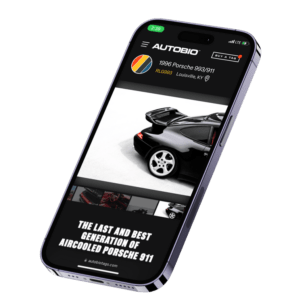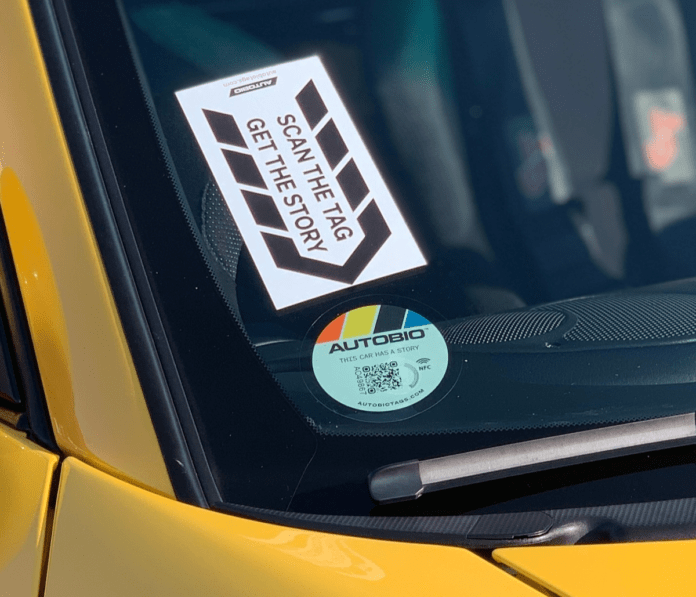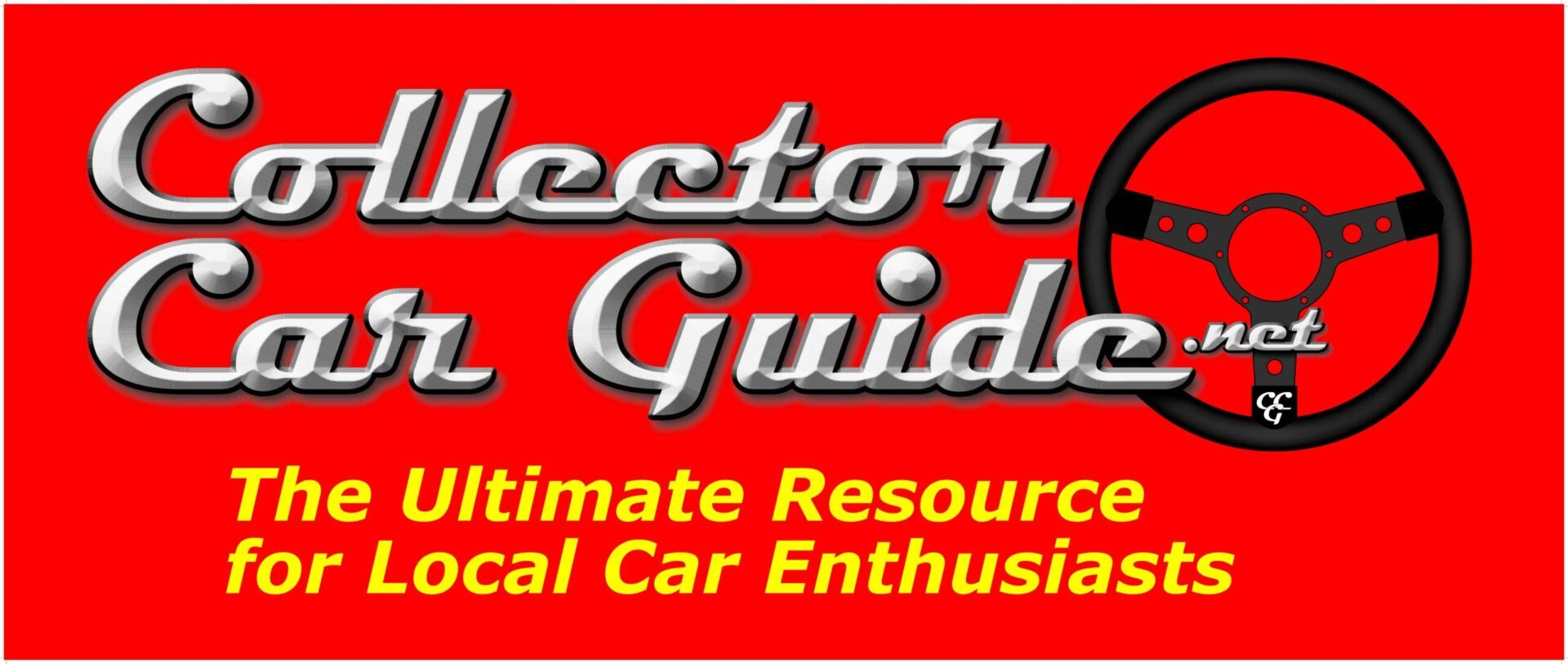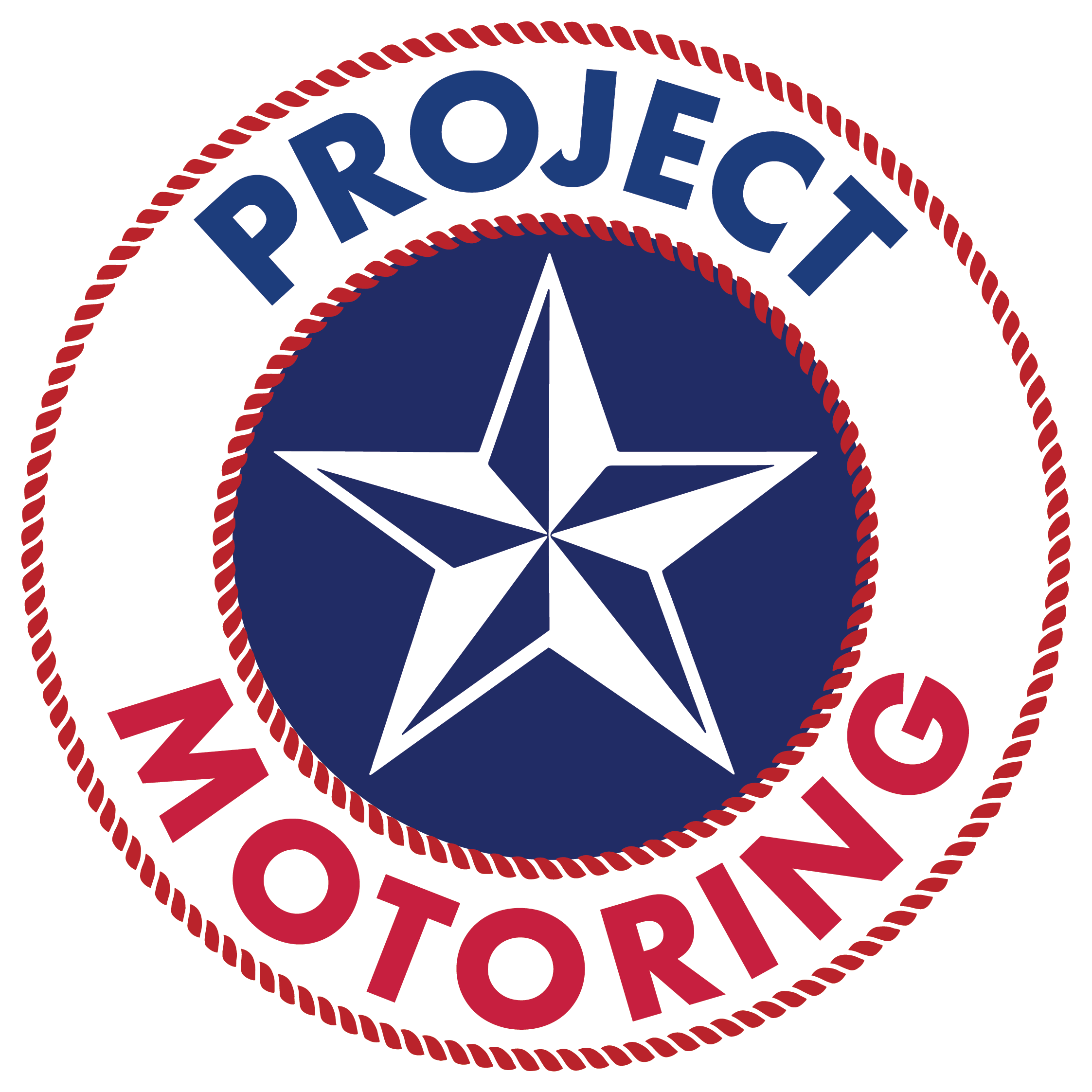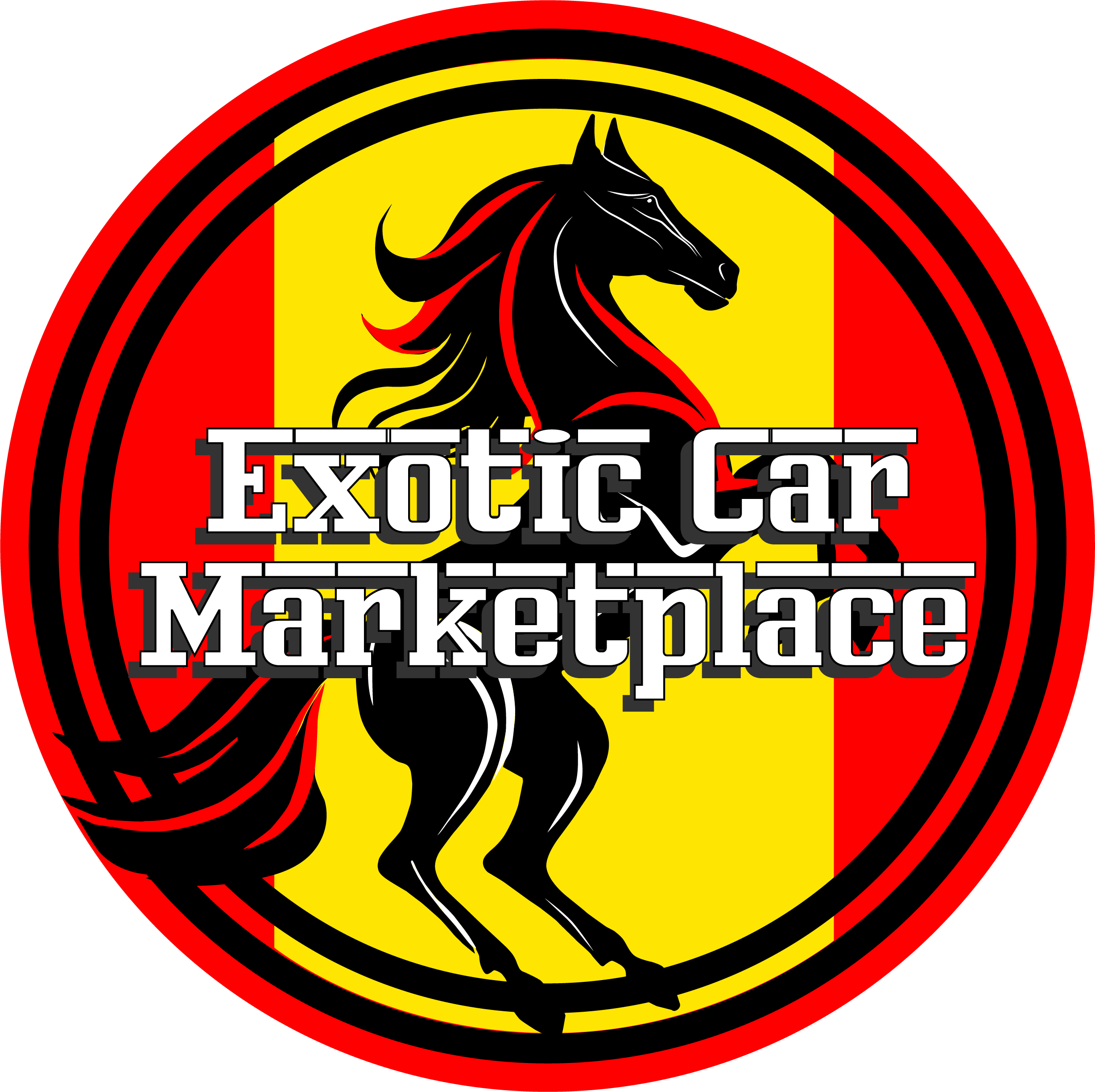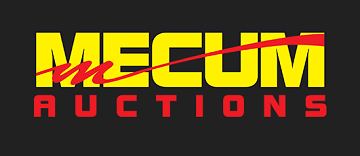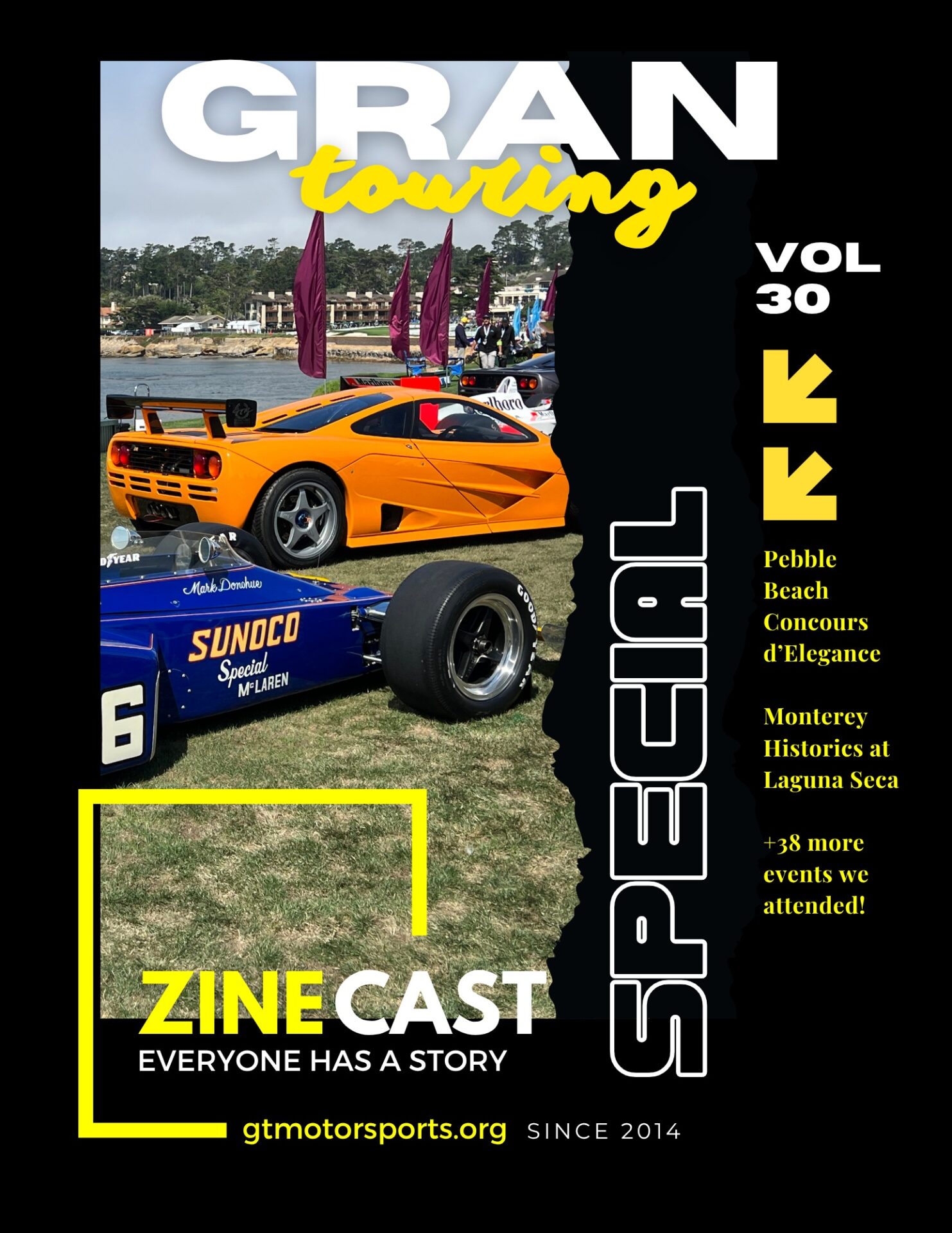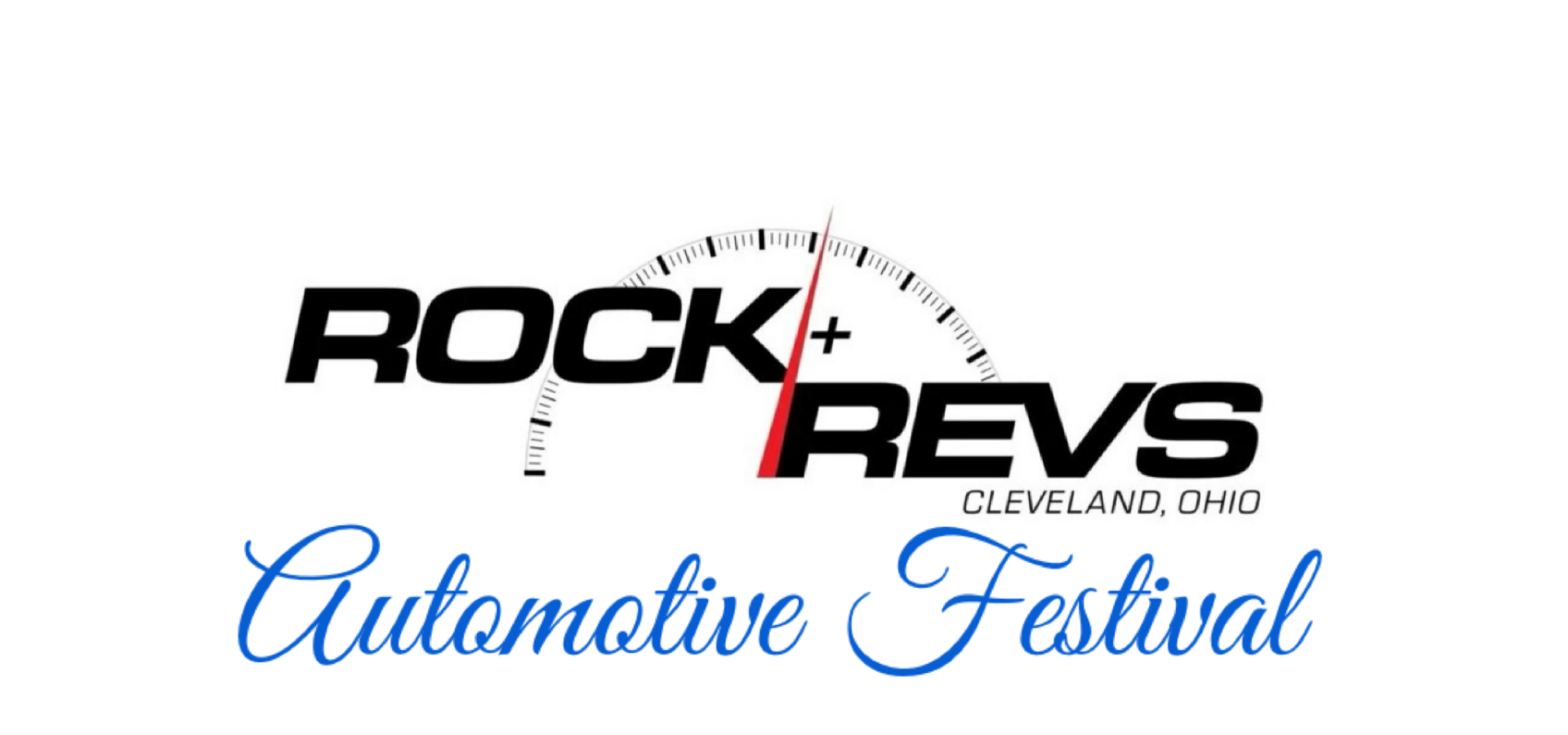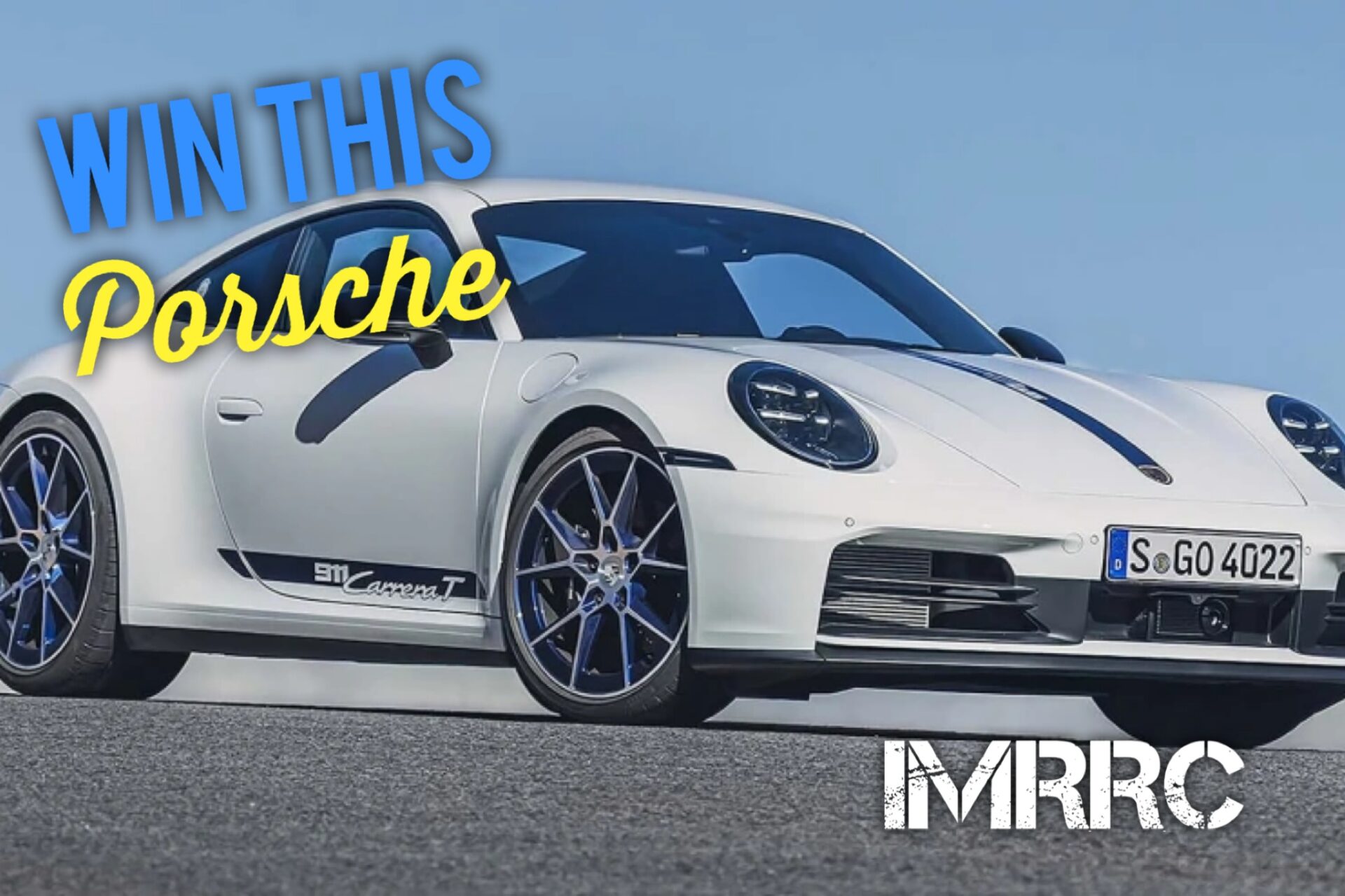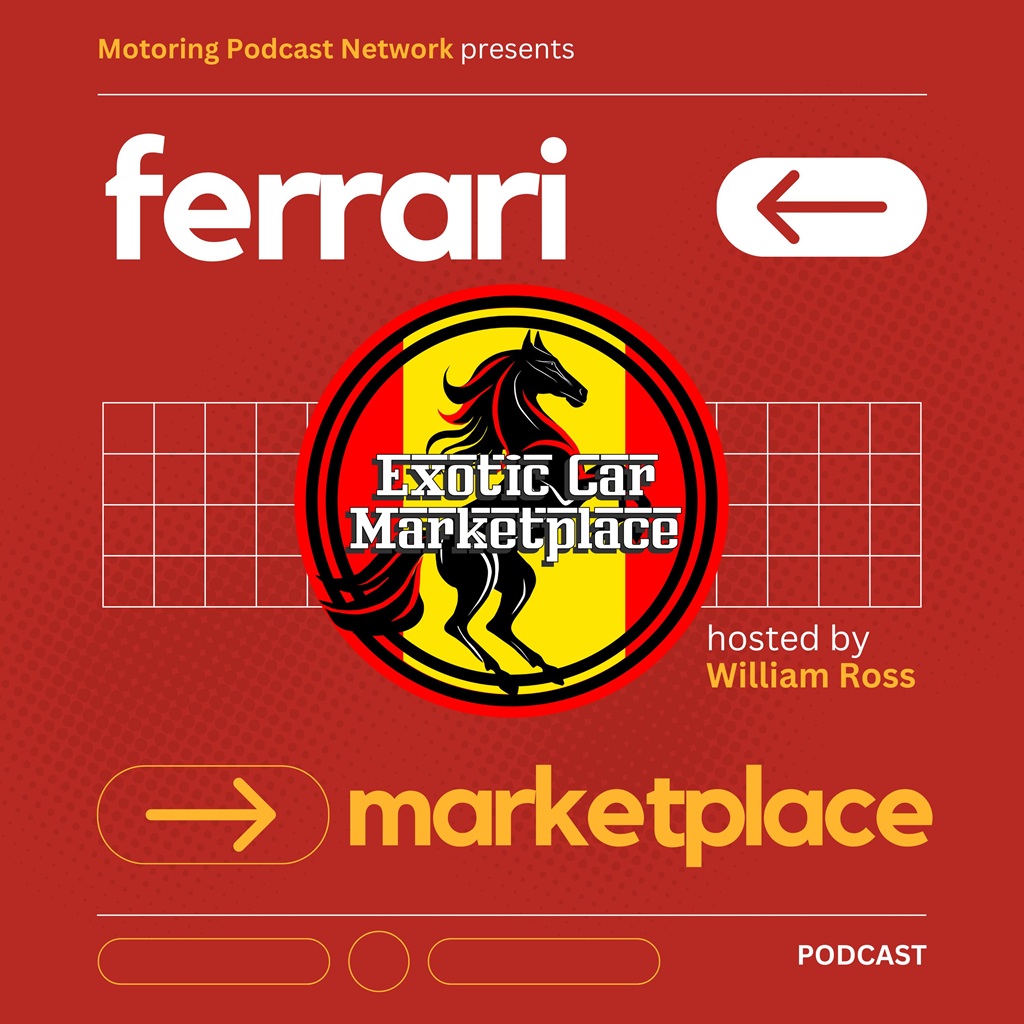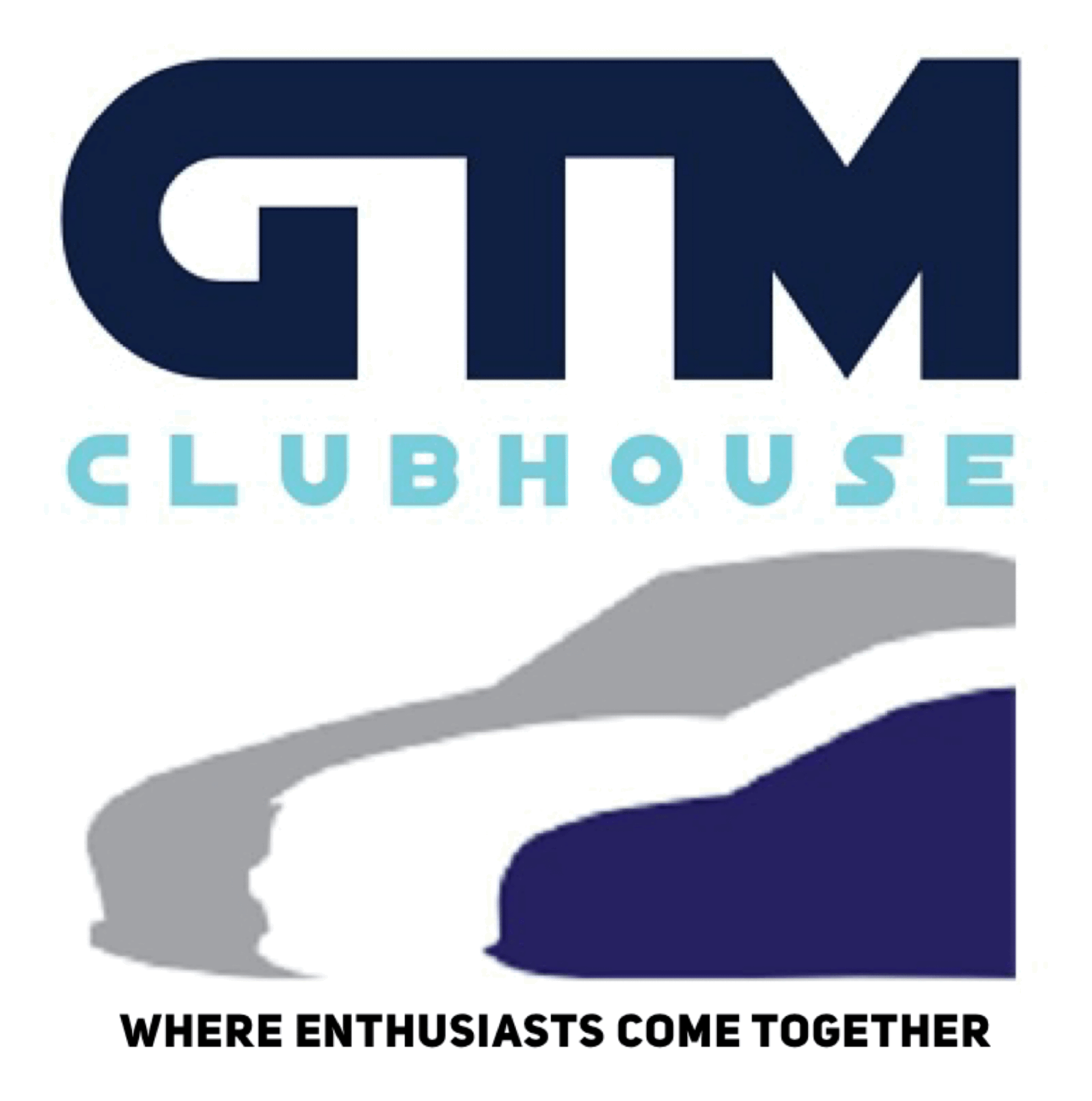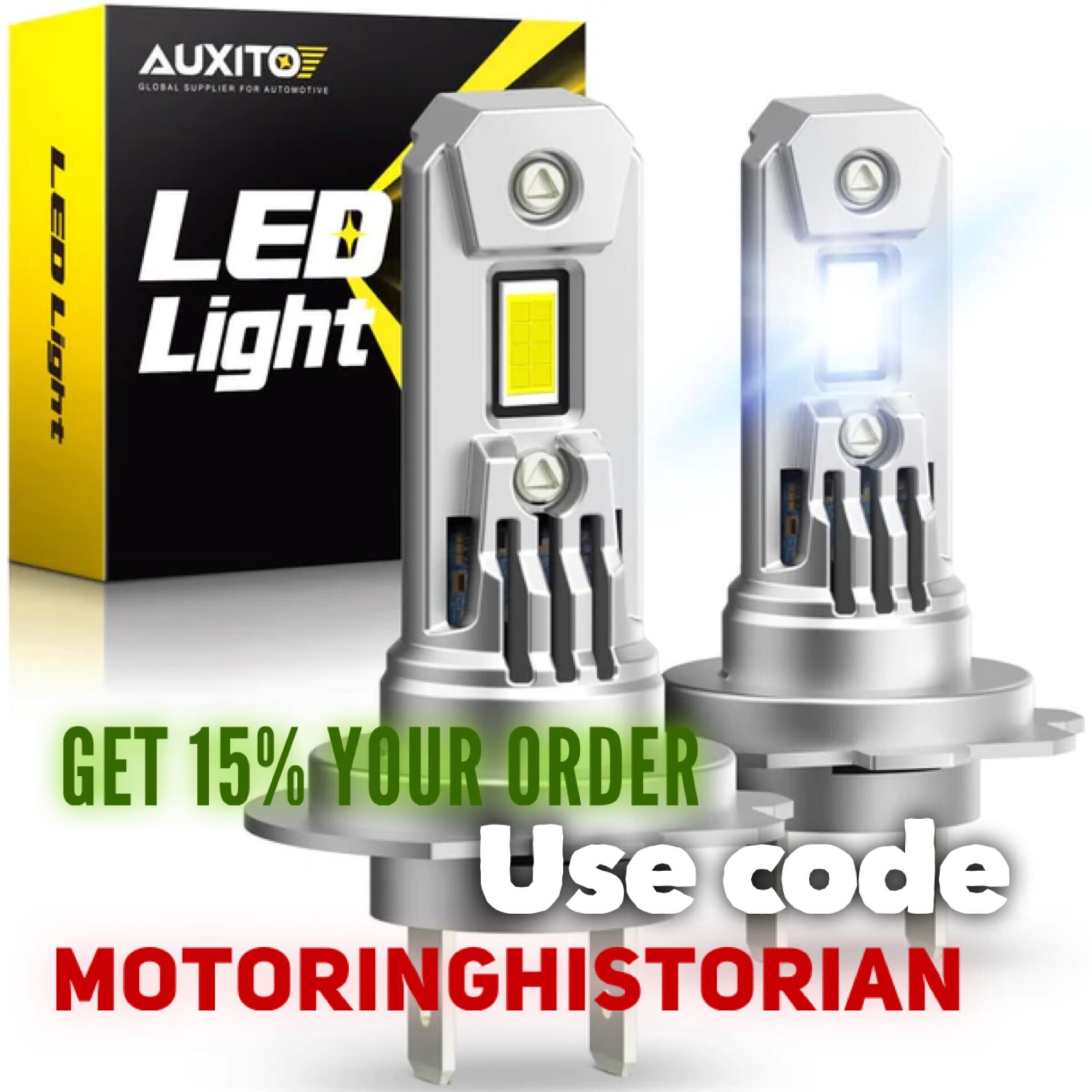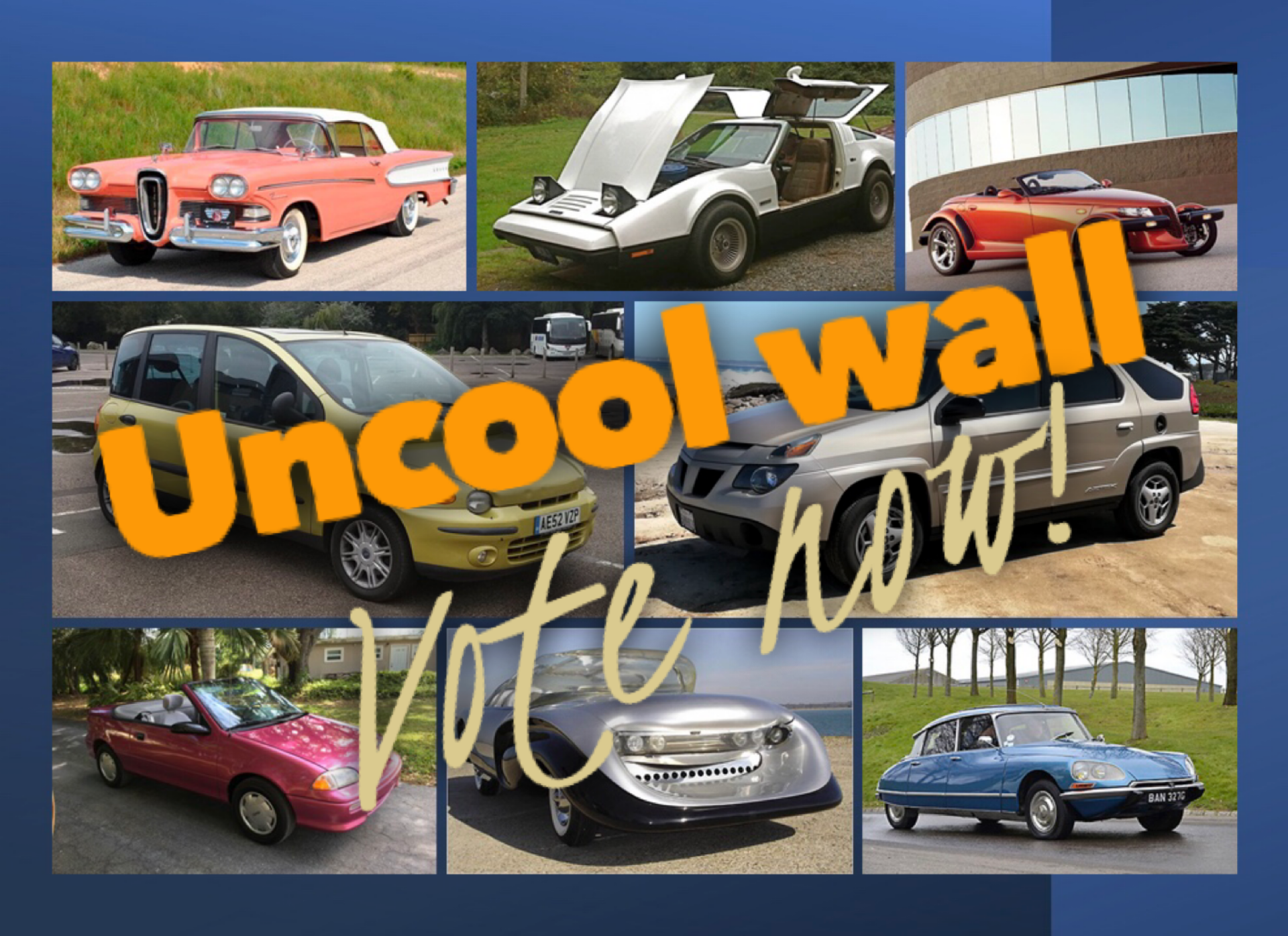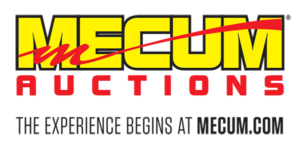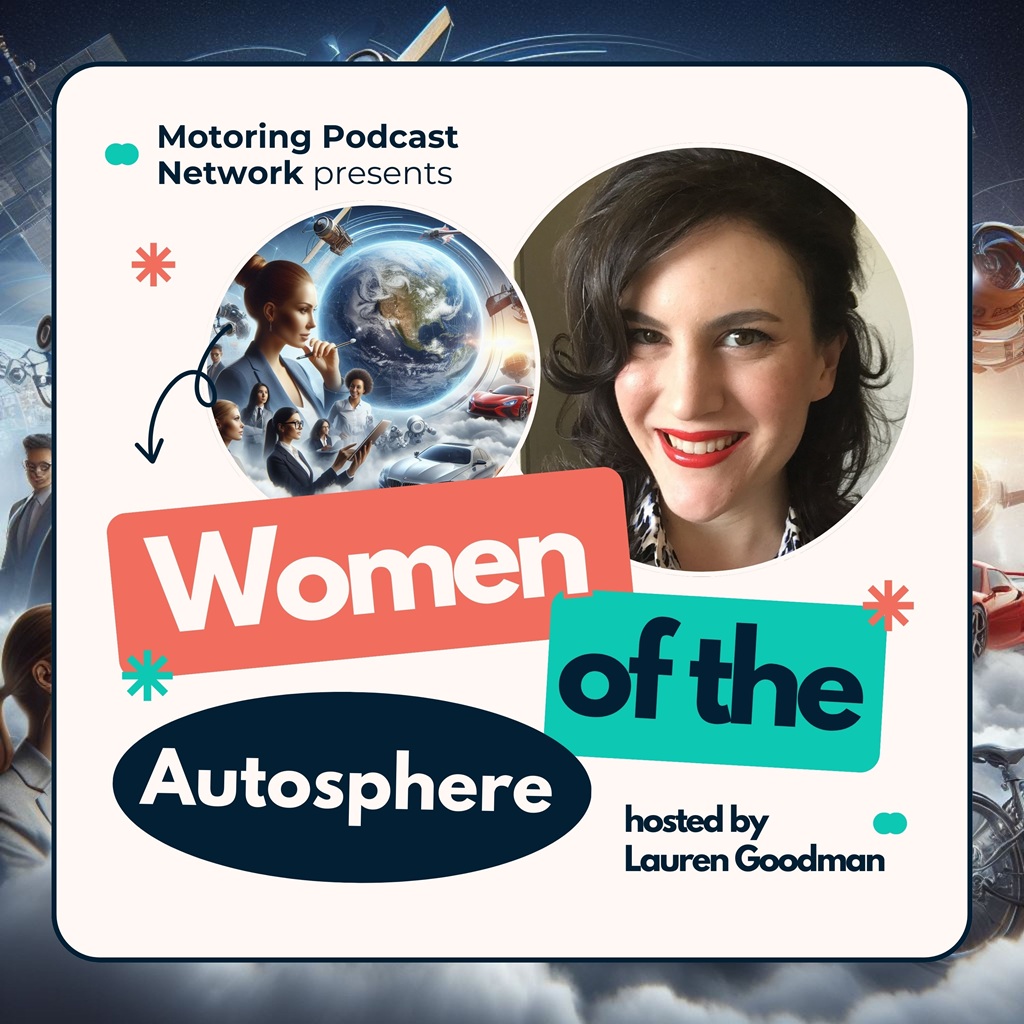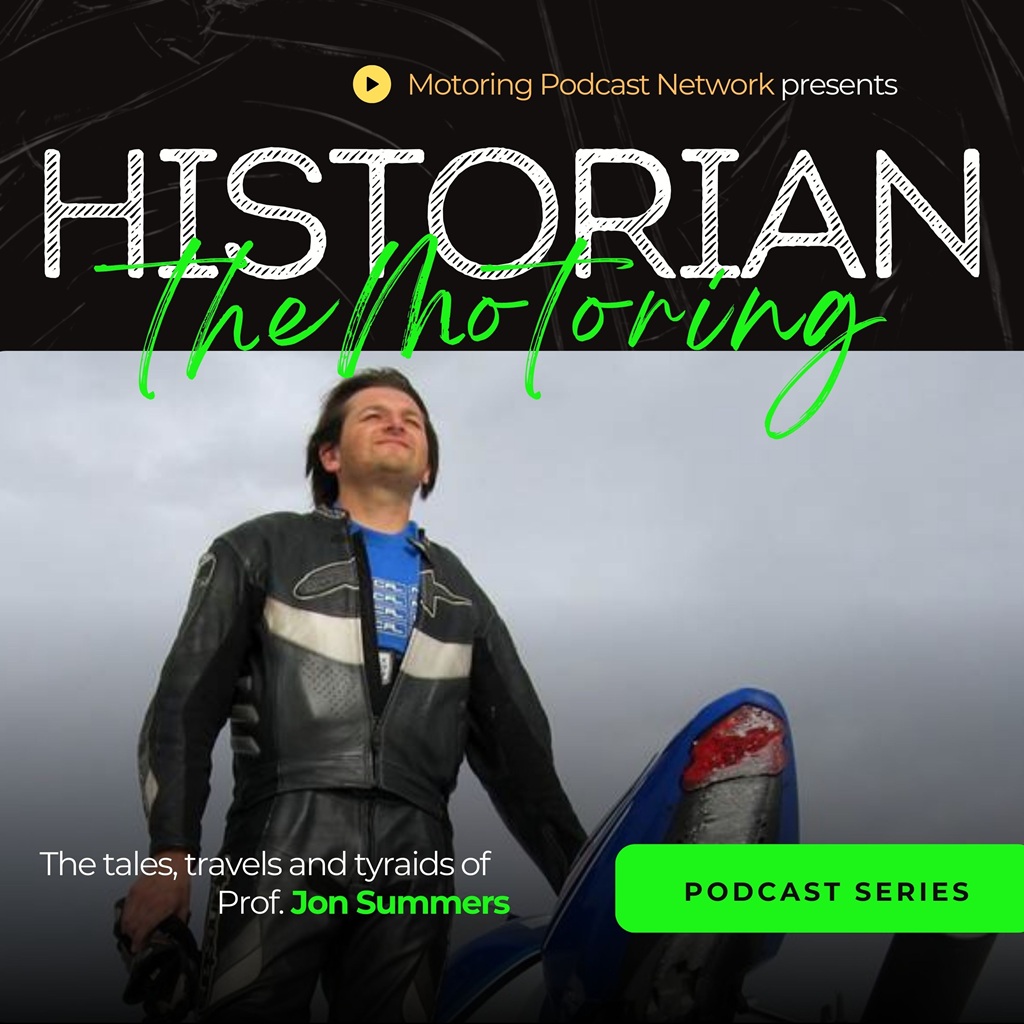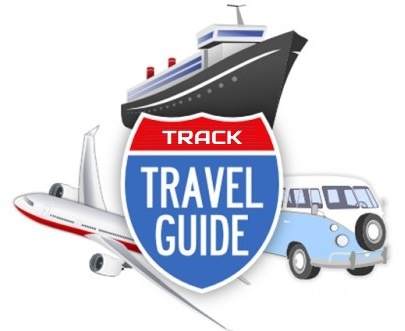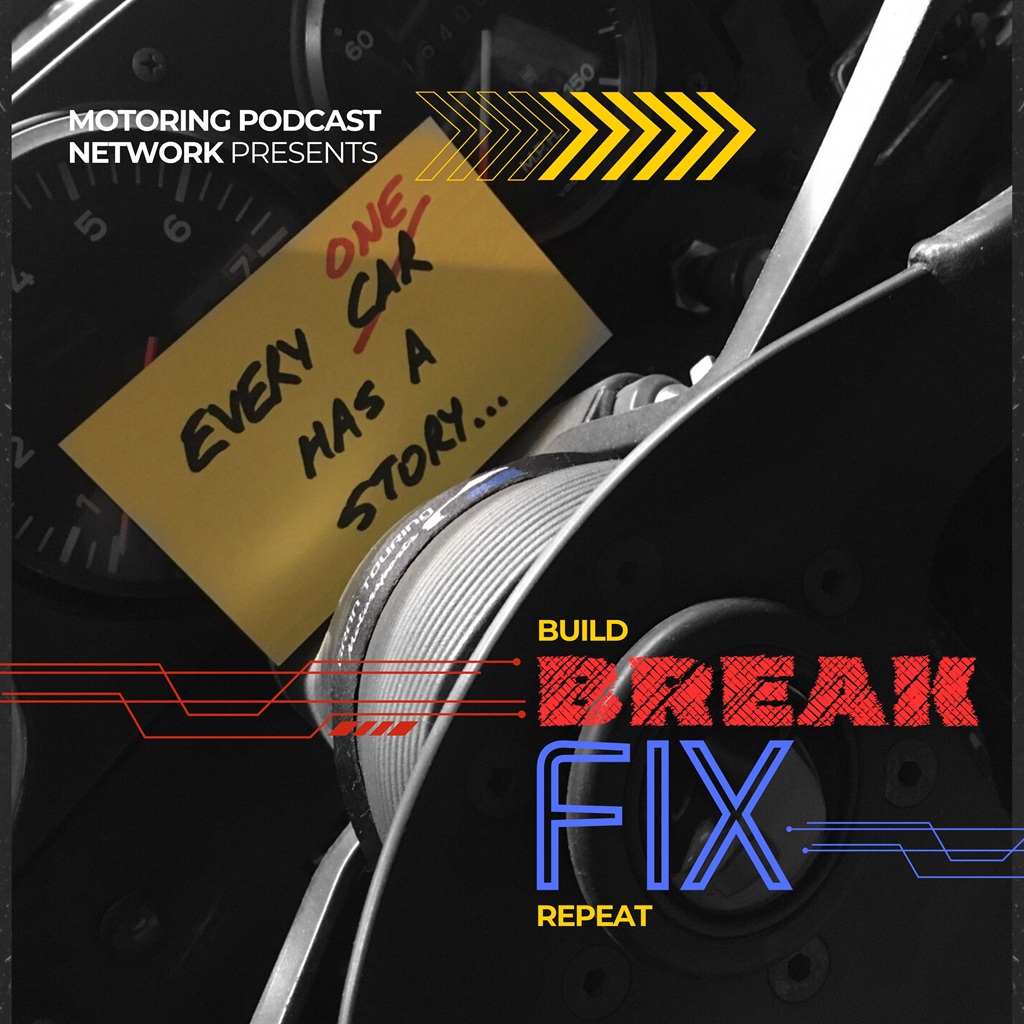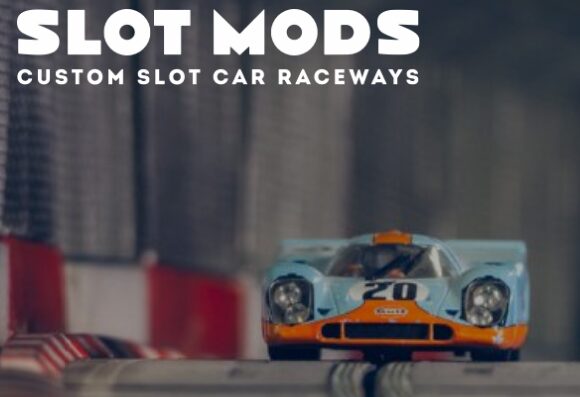Have you ever wondered what kind of story your vehicle could tell, if it could tell its own story? Seems a bit like sci-fi, but with today’s technology we can actually achieve this dream.
This episode is about the next big thing to hit collector vehicles since Leno’s Garage! AutoBio is the only on-vehicle platform of its kind to tell your vehicle’s story – anytime, anywhere. Using encoded technology it allows you to be one of millions of enthusiasts who can tag, tell, and share their stories, quickly and easily. And with us tonight are AutoBio founders Paul and Katie Rooprai to explain how it all works.
Tune in everywhere you stream, download or listen!
 |  |  |
- Spotlight
- Notes
- Transcript
- Highlights
- Learn More
Spotlight
Paul and Katie Rooprai - Founders for AutoBio
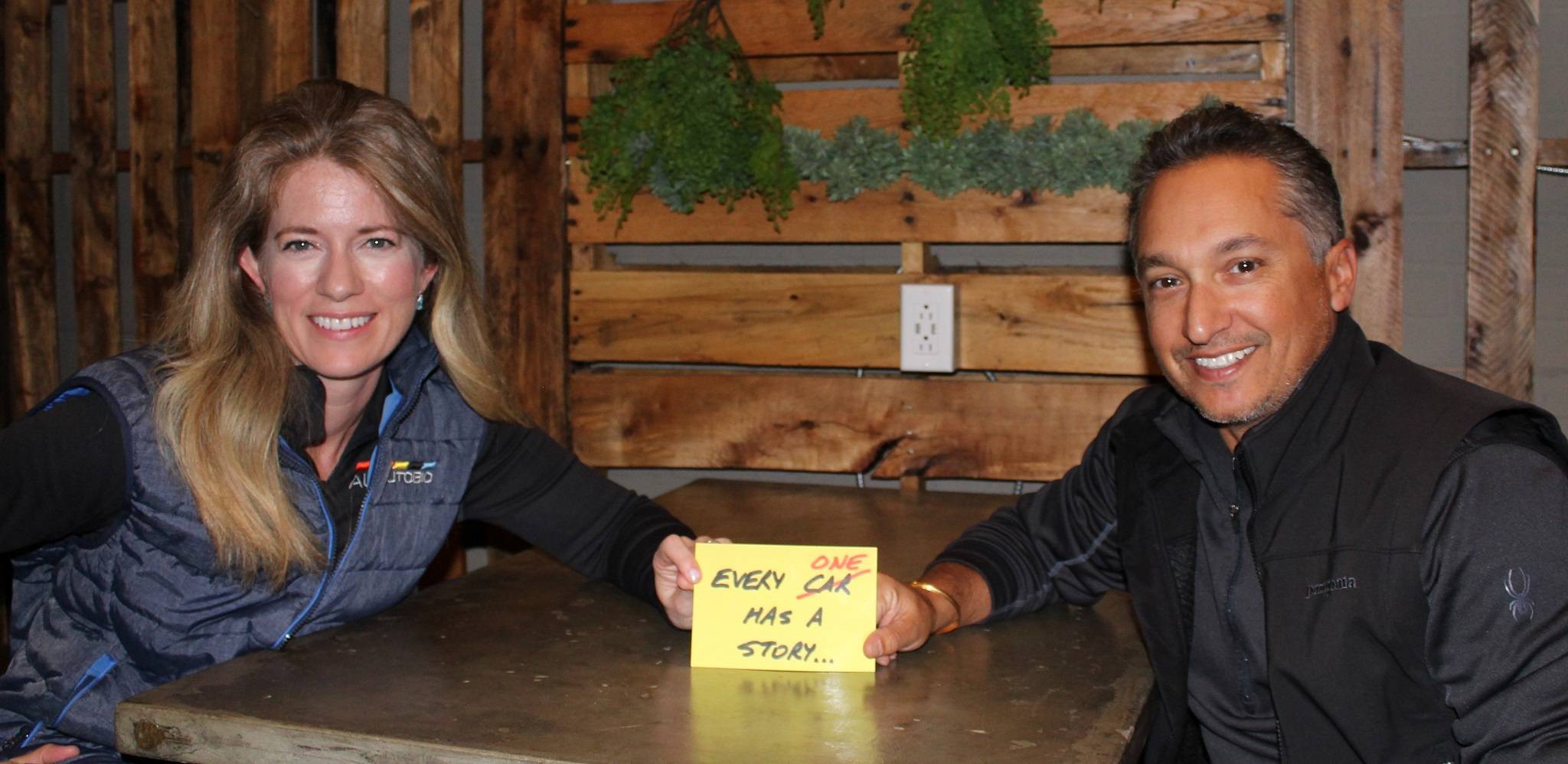
We believe every car matters, stories of ownership add value and car culture has the power to unify us.
Contact: Paul and Katie Rooprai at katie@autobiotags.com | N/A | Visit Online!![]()
![]()
Notes
- How was AutoBio formed/founded? What was the inspiration?
- Did you have a vehicle that yielded “lots of questions” you got tired of answering at car shows?
- Explain Tagging: Why should vehicles be tagged? What’s included in your vehicle’s “Story”
- Where should tags be displayed/mounted?
- Are tags associated with the car or the owner, or both?
- How do you set up the data? Phone app? Website?
- How does someone interface with a tag? (QR code via Camera?)
- What does AutoBio Tag cost? Is there a subscription fee? Are there discounts for collections, museums (some sort of multi-pack or group buy)?
- What happens if a tag is lost or stolen? Does the AutoBio tag expire?
- What’s the future of AutoBio tag? Any #spoilers?
and much, much more!
Transcript
Crew Chief Brad: [00:00:00] BreakFix podcast is all about capturing the living history of people from all over the autosphere, from wrench turners and racers to artists, authors, designers, and everything in between. Our goal is to inspire a new generation of petrolheads that wonder How did they get that job or become that person?
The road to success is paved by all of us because everyone has a story.
Crew Chief Eric: Have you ever wondered what kind of story your vehicle could tell? If it could tell its own story? Seems a bit like sci fi, right? But with today’s technology, we can actually achieve this dream.
Crew Chief Brad: Whoa, we’re not going on some eighties inspired Knight Rider fever dream.
Are we talking cars? What are you on about?
Crew Chief Eric: No, Brad, even better. Tonight’s episode is about the next big thing to hit collector vehicles since Leno’s Garage. AutoBio is the only on vehicle platform of its kind to tell your vehicle story anytime, anywhere. [00:01:00] Using encoded technology, it allows you to be one of millions of enthusiasts who can tag, tell, and share your car’s story quickly and easily.
And with us tonight are AutoBio founders, Paul and Katie Ruprai, to explain how it all works. So welcome to BreakFix.
Paul Rooprai: Thanks guys, awesome to be here.
Crew Chief Eric: So before we jump into the technicalities of AutoBio, let’s talk about your Petrelhead origin stories. Tell us the who, what, where, and when, how you guys got into the hobby and what gets you so excited about it?
Paul Rooprai: Gosh, well, I think for me, it’s like most guys, goes back to the garage and the dad and, you know, holding the wrenches and, Doing all that good stuff. And, you know, back in the seventies, when I was growing up in Milwaukee, Wisconsin, I, I know my dad was just wrenching on everything that he had. He was an engineer, so there was nothing that he couldn’t do or couldn’t fix.
And I just picked up, you know, kind of a love of being around cars and just that idea that you can actually change something or tweak something and actually get a result. And then from there, we watched all the shows when I was growing up. Knight Rider, [00:02:00] absolute fan of Knight Rider. Before that was Duke’s a hazard, right?
I mean, generally that was pretty bad ass car. And then I just went to all the shows and everything like do with my dad when I was a kid. So growing up, doing all that. And then when I was in high school, my graduation gift was, you know, spend some time on the track. So I got a chance for a weekend up at road America, but you know, Hey, dream job would be to be a racer for sure.
That was always my dream job growing up. And when I got that gift for my dad to go rip his car on the track for a weekend. That just sealed the deal for the rest of my life. I’ll hold true to that. Despite all the corporate jobs and the endless stuff that I had to deal with in my career, now, at least I get to live vicariously through all these stories.
So that’s pretty cool.
Crew Chief Eric: So Katie, do you come by way of this through blood or by marriage?
Katie Rooprai: A little bit of both. Actually, I grew up outside of Detroit. Both of my grandfathers were in the automotive industry, worked for General Motors and for Spark Plugs. You live in Detroit. It’s in you, you know what I mean?
It’s just part of what you do. But I really married motor sports when I married Paul, because that’s when I got to know kind of the fun side of [00:03:00] things. Paul took me to my very first car show, which was a British car club and in a local group, and I was pretty hooked. I don’t have the knowledge and the repertoire that you guys do, but I can hang.
I mean, I, I like to just get in there and talk with people and hear what they have to say, and I just think it’s super fun. So
Paul Rooprai: there was a connection though, early on, before we got married, we. Both were traveling to Chicago for work. We had a rental car, got a flat tire on the side of one of the highways, and we needed to get to the airport in no time.
And it was raining. It was cold. We looked at each other and jumped out of the car and she like instantly know how to go to change the tire mode, which kind of sealed the deal for me. I was like, all right, this woman can, uh, change the tire. This is a really good start. 14 years later. I don’t think we’ve ever changed a tire since.
So
Katie Rooprai: I actually don’t think we have, but we should tell everyone what I was driving when you first met me, which is kind of part of our, our history as well. So a thing you should know is I actually don’t care what I drive. If it gets me there, I’m good. So I’m really not that picky. When I met Paul, [00:04:00] I was driving.
A 1989 Chrysler New Yorker. Can we picture it? I mean, you got it in your mind, right? I’ve
Crew Chief Eric: driven one of those.
Katie Rooprai: So I was like a 20 something young professional driving that car. Your
Crew Chief Eric: grandfather’s car, right? That’s the excuse.
Katie Rooprai: And Paul was like, what are you doing?
Paul Rooprai: And it didn’t get out of third gear. So we managed to get it over to like the CarMax and he traded it in.
Well, it had a
Katie Rooprai: short life after I met Paul. It actually just really kind of crapped out, and I was like, well, it must have been a sign I was ready to upgrade my life.
Crew Chief Eric: You know, we don’t often get couples on this show, so it might be time to ask one of our first Pit Stop questions, which is between the two of you, Can you agree on the sexiest car of all time?
Katie Rooprai: Yeah, that’ll be easy because I’ll just look at Paul and be like, what do you think?
Crew Chief Eric: Well, that answers the three car garage question too. Yes. Yes.
Paul Rooprai: Wow. Okay. Um, I’m going to pick one that I know we both would love Ferrari Dino. Yeah. [00:05:00] Yes.
Katie Rooprai: Agree. Agree. Yeah. And I would throw in there. I don’t know if this is of all time, cause that’s a pretty big bar to set, but I would throw in there maybe like a 60s or 70s Corvette.
Just for something a little classic.
Paul Rooprai: Okay. Convertible?
Katie Rooprai: Uh, no.
Paul Rooprai: No.
Katie Rooprai: He’s like thinking he’s like no wrong answer.
Crew Chief Eric: No. Split window though. She upped the ante on you. It’s gotta be a split.
Katie Rooprai: Yeah.
Crew Chief Eric: We can race. I’ll take the Dino out. It becomes like an episode of the Persuaders. The Aston versus the Dino. Yes. That’s right.
So the flip side of that question is always pretty obvious. Right, Brad?
Crew Chief Brad: Oh, yeah. What is the ugliest car of all time? I’m
Paul Rooprai: kind of going with that. Christ.
Crew Chief Eric: Yeah. Three box design on that one. Not too hard to draw the New Yorker from the 80s. That’s for sure. So let’s jump back in the timeline. You guys have been together for a decade and a half now, somewhere in this love story. You got the idea to start Autobio. So how was that formed? How was that founded?
What was the inspiration?
Paul Rooprai: Let’s see, I was [00:06:00] in Stuttgart on business and had a chance to go to the Porsche Museum. This was back in 2017 and ran through there with a couple hours to spare, taking pictures as we do of all the cars and all the placards. and trying to share those with friends back home. It was just a colossal mess to try and organize all that.
And I actually had that thought at that time, somebody should just make something that goes in the window of the car that you can just take your phone out and scan it and take the stories with you. That was kind of the seed of the idea, but I don’t think I mentioned it until late 2019 to Katie and one of her uncles who was a collector.
That might’ve been the first idea I’d come home with that she kind of said, yeah, that’s not too bad. For entrepreneurial stuff, none of them have really gotten off the ground, but that was late 2019. And then the pandemic hit and it was like, well, what are we going to do with our time now? We just decided to go for it quite honestly.
And there was really nothing in the market that was like it. Katie’s classically marketing trained and thought about it from the consumer standpoint. It kind of met a really good test at that point in time, in my opinion, because you’ve got somebody who’s. Been around cars, but isn’t really a [00:07:00] car person dyed in the wool who goes, yeah, no, that light bulb makes a lot of sense.
We spent the better part of a year really building out the idea and finding the people that could build the platform and finding the people that could build our tags, filing for patents, doing all that stuff. And then it all came together right around Mid 2021 is when we launched. Mid 2020 is when we actually started working on the idea.
Katie Rooprai: Paul is a serial inventor. And so throughout the years he’s come to me with a lot of ideas. What about this? What about that? And my litmus test is always, does the world need that though? Does anyone care? Because then you got to turn around and make people care about it. But when he came to me with this, I was like, That’s very interesting because you just can immediately see the need for it and see how people would use it in a variety of ways.
And so, yeah, I said, green light, go, let’s do it. And let’s not stop until we’ve really done it. But I thought for sure we would run into somebody who has already done this. To be honest with you. So we did a lot, a lot, a lot of research in there thinking that that was going to turn up and there’s nothing like it on the market, which made [00:08:00] us, you know, even more keep going, you know, keep driving this thing.
Paul Rooprai: It was kind of interesting that, you know, as an entrepreneur who has a vision, has an idea, when you’re on the backside of it, and it actually exists, it’s, Cause you’re like, how did that happen? You know, how did all those perfect moments happen where it all just kind of fell into place because there were a lot of barriers that came up along the way, you know, people telling us, Oh, we can’t get the technology to do what you want to do, and we can’t fire off a new webpage every time, you know, a tag gets registered and all this kind of stuff, but also the biggest complexity and all that was the fact that we never met any of our vendors in person during the pandemic.
So we’re working with people on both coasts and everywhere in between. Can you trust somebody? You never really met them, you know, are they going to just kind of take the money and run? I mean, all these things that have happened along the way and, you know, sure enough, perfect storm, it all kind of fell into place.
And the next thing you knew we were standing at Amelia Island in 2021, we grabbed their last tent to actually launch the product there just happened to be the next big car show. I remember we had kind of that pinch me moment where we’re like, holy cow, we did it. You know, now what [00:09:00] happens, you know, we had a really nice reception that time and things just kind of built from there.
So I guess your thought about will anybody care? We quickly got some validation around that, which was awesome.
Crew Chief Eric: So what was the first car to get a tag?
Paul Rooprai: The first car to get a tag was, it was probably a Trans Am actually. There’s quite a few Trans Ams on there, which is great. Cause that was one of my favorite childhood cars too.
And then shortly thereafter, it was really interesting to see first cars that came on really span the gamut. We had Muscle cars, we had really high end Mercedes, we had a ton of Mustangs that came on board, bunch of Corvettes. And then we started seeing like the hot rotting kind of guys get it. And then people started using it to list all their mods.
So we even had 20 somethings driving around, you know, whatever that they’ve souped up. It’s really just kind of exploded from there. We always like to say, we don’t care what you drive. We don’t even care if it runs. Yes. Probably got a story, you know, you might as well tell it with a tag. So how many cars in the system now?
Over a thousand tags out there. And there’s some collectors out there. We’ve got one that’s got like 35 cars on there. We just closed a [00:10:00] deal today with another museum. It’s got 65 cars. So they’re going to get their whole collection tagged. And then there’s, you know, there’s guys like you and me, who’ve got one car that they absolutely love.
That’s the one that’s tagged. So
Crew Chief Eric: I like how you mentioned that with the museums bringing in the 65 cars because that’s your original use case. And I love the fact that in today’s world where things are a little bit more automated or maybe we could say impersonal, it’s nice to go to the Porsche museum or whatever museum and be able to scan a car and then have the information right there in front of you.
Translated into your language of choice. Let’s say things like that. So that takes away maybe having that docent or that more personal experience, which you can still get. But this way, you’re not kind of going. Well, I wish I knew that this was more than just a 9 11, you know, so that that is kind of nice.
So that initial use case and we’re going to talk about it more as we go along here can be exploded into so many different things.
Paul Rooprai: Exactly. And, you know, I just remember having this vision, like, thinking about it being on the other side of the development of it. It exists today, what my vision was in my head when I walked through that Porsche Museum, where I could go down the line and [00:11:00] tap all these tags, because you can either tap it or you can scan the QR.
It’s got NFC in it as well. And then all those history, kind of like little digital baseball cards on my phone, so I can look at them at leisure. I can share them with friends. I can save them to my virtual collection so I can have a digital garage, all that kind of stuff. And that exists today, which again, it was one of those weird things.
I’m sure there’s plenty of other entrepreneurs out there who you kind of light bulb goes off and you just see the vision and maybe don’t act on it for whatever reason. Then whatever years later, there it is. And it looks just like what you’d envisioned the whole times.
Crew Chief Eric: So are you guys still the only ones on the scene or have other people jumped on the bandwagon?
Suddenly?
Katie Rooprai: Yeah, it’s just us.
Crew Chief Eric: There’s no
Paul Rooprai: competitor out there yet
Crew Chief Eric: that
Paul Rooprai: we know of.
Katie Rooprai: There’s been others who have tried various aspects of it, but no one who has done what ours does, which is a physical product on the car, which links to the digital life of a car lover, right? And I think that that’s a really important insight is that in the motorsports world, you live in two worlds.
You live online because you’ve got so much going on online, whether it’s auction houses or just [00:12:00] research or buddies swapping stories, but then you also have a physical product. Physical activity, you’re going to a track, you’re going to a show, you’re going to a meetup. And so what we’ve really done is kind of bridge those two worlds so that they can flow seamlessly.
Wherever you are, you can share your story and that allows you to talk with people and take the story with you.
Paul Rooprai: Probably the closest thing to it right now is the Instagram handle on the side of the car. Yeah. Where, where you can just bridge that digital and physical world. And that’s cool, you know, for people that use Instagram, but not everybody does.
Enthusiasts have different elements to their story. They’ve got maybe a social media element. Maybe they’ve got the history that’s in their head. They’ve got the pictures that they’ve taken, you know, last weekend or just today. This at least on our platform allows you to put all of it together in one spot.
Katie Rooprai: And I think what we hear a lot about frustrates people about trying to record or keep track of their automotive life on Instagram is yes, you’ve got your feed, but then you’ve got like, wait, where was that one photo that I’m scrolling through trying to find? I was at that track the one time. And so. It doesn’t really save your highlights in a good way, and [00:13:00] it doesn’t allow you to tell a story in a chronological order.
So we always encourage people, yes, still do that. You’re going to keep your social media, you’re not going away from that, but you can link all that to your autobio, and then just go straight to your autobio profile, and it’ll have your favorite photos right there, and it’ll have your story kind of all neatly laid out.
So we find that people really do want to do both of those things.
Crew Chief Brad: Well, we’ve already kind of touched on who this is for. You said cars, I’m assuming trucks, you know, anything people collect. Anybody in the boating enthusiasts or motorcycles? I’m assuming it’s small enough that it could fit on a motorcycle windshield.
Boats have windshield. I mean, also, what about ease of use? I know a lot of people in the collector car world, unfortunately, are technologically adverse. So how are you helping them?
Paul Rooprai: In terms of other uses, like boats, I’ve got a friend of mine who’s got it on a sailboat. We’ve got a couple of planes on there.
Actually, one guy that’s got this really amazing 1940s Waco. It’s a biplane. I’ve seen the plane before, and I know that it’s got like 135 page document that he pulls out of an air show in Northern California, people page through it, but [00:14:00] then there’s also like, Hey, you can join the 21st century and put all that up on a tag.
We’ve built him like a custom decal for the front of the engine sits kind of close to the engine. So when the plane is parked, you can walk up and scan the tag and there’s 135 pages on your phone. Now you mentioned motorcycles. Yeah, for sure. In fact, the museum we talked to today, it’s a dealership chain that’s in our local area that has a museum and they’re buying a motorcycle dealership.
And that’s coming with like, like you said, like 15 or 20. Like old Ducatis and kind of old, um, cafe racers and whatnot. And they’re actually interested in putting them on motorcycles too, which is great. So you can put it on just about anything. We have a couple of campers on the site, believe it or not.
People that are like, Hey, I can use this to document kind of my journey. So I can put on pictures and I can put captions in those pictures from when I went on vacation. Rocky mountains 2022, but they actually have also contacted us to get a blow up of their QR code to put on their tire cover on the back of the camper.
And so [00:15:00] rather than that map that we all like used to see back in like the 70s and 80s, you put the sticker on where you’ve been. They’re just like, Hey, scan my QR and you’ll see where I’ve been. So it’s kind of cool.
Katie Rooprai: We had someone last year who put one on a golf cart because the golf cart had a great story.
Sure enough. We also do other applications for people. Sometimes if you run into a motorcycle that doesn’t have enough tire cover, Space or doesn’t have a windshield for that matter. We’d get creative sometimes about where you can put it in a hang tag or a plaque or something like that. So sometimes your story can live, but it doesn’t have to live on the windshields.
Crew Chief Brad: Say I run into a car enthusiast and he’s got the same car at the grocery store parking lot. But I don’t have my car with me. I’m driving the grocery getter, but I want to badly talk to this guy and prove, Hey, I got one of those too. Here’s my key chain with my QR code. Yeah, we could do it. Katie
Paul Rooprai: did a t shirt the other day for a guy who shows is actually a trans am off quite a bit.
Katie Rooprai: He goes to shows. And so he now has his own custom one of one t shirt with his own autobiography are in the back of it. So when he walks around shows, people are just. Grabbing his story as he walks, which is kind of fun.
Paul Rooprai: One of the things that it [00:16:00] does for people that have multiple vehicles, it’ll auto catalog them all under your username and there’s an individual URL for that.
So we can build a custom QR for that. And like guys know those like challenge coins that military folks carry around. So you can laser etch a blank with a QR code. And now that person can have that in their pocket, pull it out. And you know, you scan my. QR and you can see my whole collection. So I guess for showing to friends and kind of like a brag tag moment point being, yeah, we can put it on just about anything.
Katie Rooprai: Brad, your second question was a great one about how are we integrating this technology with older clientele? That’s frequent in the hobby, quite honestly, and very valuable. I mean, because they have so much information, you know, that we all want to know and that we all want to preserve. One thing we do is we work a lot with people one on one when they need it.
And so some of our most gratifying customer moments, I think have been when we’ve been working with someone and then we walk them through it and show them how it works and they go, that’s so easy. I get it. You know, like they really have that realization moment that yeah, I can do this and this wasn’t as [00:17:00] hard as I thought.
So. We’ve had that quite honestly with people that span the ages though. I mean, like people constantly tell us, Oh, that was way easier than I thought. Or it was very user friendly, which is intuitive. We’ve made the program that way so that it’s kind of a plug and play situation. Yeah. It’s
Paul Rooprai: really like a fill in the blank.
So Katie will describe it to people when we’re standing there at a show or something like, Oh, I just don’t do technology. And she’s like, well, can you fill in a form online? Well, yeah. Okay. Well, then you can build an auto biotech. I mean, it’s that simple.
Katie Rooprai: Yeah. So we do try. Yeah. We do try to explain it to people that way.
Paul Rooprai: Make no mistake. There are people that are just like, no, not for me. Cause I’m just never going to do that. I’m never going to fill that in. Or
Katie Rooprai: if you walk up to me at a show and you have a flip phone, like we’re probably not continuing the conversation, which is fine. I mean, you’re still cool, but I, I can’t sell you a tech, so,
Crew Chief Brad: but those are the people that actually like to talk to other people and have those conversations.
You know, we’ve got the resident mountain man that can talk your ear off for hours and hours and days and days. Those are the people that enjoy that aspect of it. But for [00:18:00] me, I’m always in a hurry. I’m kind of an introvert. I want to learn about your car, but I don’t, I don’t want to talk to you. I just wanted to learn about your car.
Paul Rooprai: That’s me. So this
Crew Chief Brad: sounds like something perfect that I’d want to, you know, Oh, I just woke up, scan your car and walk away. Perfect. We don’t have to be awkward around each other.
Katie Rooprai: I don’t have to interrupt your conversation. You don’t have to get out of your lawn chair, like whatever it is. Yeah.
Paul Rooprai: Yeah. We, we have a funny kind of insight that it’s like 10 a.
m. at Saturday morning car show. And you’re done telling the story, point to the tag and tell people to scan it. Hey, take the story with you and you don’t have to get out of your lawn chair. I have a question for you, Eric. You built an auto biotech recently. How was that experience?
Crew Chief Eric: So I found it to be really easy.
It sort of just walked me through the process. Step one, step two, step three. I thought it was funny that I got stumped a couple of times where it was like, what’s the weight of my car. I had to go look it up like on Edmonds or somewhere else. Cause like, I don’t remember knew my mileage. I actually had my dino sheet.
So I knew my numbers. You know, that kind of stuff. I had to look up my length. I love the question about condition. I put low because that was a good [00:19:00] answer. Right. I didn’t know what to put. So some of it’s like, yeah, I need to refine it. I need to go back later. You know, things like that. Uploading the pictures was really straightforward.
I did it on my computer rather than on my phone. So I don’t know what the. But on the desktop, I can’t imagine it’s too different, but the end result was great once I kind of got it up and I looked at it from the person viewer side of it. It was immediately up on the front page. I was like, that’s cool because I didn’t know if I was going to get buried somewhere.
Like, Oh, you got a Volkswagen. You’re on like page 57, you know, cause you got to get all the way to the bees sort of deal. It worked out great. I mean, I really like it. I like the way it feels. I need to go back and personally refine my profile a little bit more, upload some different pictures and stuff like that.
Again, I put it together because I just wanted to know how it worked. But other than that, it was great.
Paul Rooprai: I noticed you also put some profile about GTM in there too. So you took advantage of that kind of user profile as well. So if you don’t mind me asking, how long did it take you from start to finish?
Crew Chief Eric: I have to say I cheated a little bit.
Because I had this already built for [00:20:00] a car show before COVID where I used a QR code. It’s on a page on our website. So I basically took that apart and I repasted it into my auto bio profile. And I’m like, this is much cleaner presents better than a piece of paper tape to my window with a QR code. But at the time, to me, that was a great idea because I will say all in all, if I go back and do this from scratch and I had to write it all in the same amount of detail, I mean, some stuff I did write from scratch.
I spent maybe 20 minutes, half an hour tops, but I’m sure there’s people that will sit there, reread it, reread it, read it, go over. Oh, I forgot about this. Oh, I added this part a year ago, you know, stuff like that. And that’s the evolution of the story of the car. But to your point, when I’m at a car show, or I’m in an event or an autocross, and I’m sitting there, chumming it up with people.
I go, Oh yeah, let me add this to my bio real quick or take a picture of it there. A new picture while I’m at the event. Super easy to do for my phone. If I remember my password, that’s the other trick of all of this is what password did I set it? I don’t know. You know, [00:21:00]
Paul Rooprai: right. That user experience was good.
Cause again, it’s like, we just want to get all the friction out of there and give people something that, you know, it’s hopefully a fun experience actually building it and kind of seeing the company.
Crew Chief Eric: I love the quadrant. Set up and all those lead in questions, I think for me, I would have liked to just taken my mods and had a mod sheet, right?
Sort of like a spec sheet separate from the story. Because if you look at features, I love that’s where I put all my mods. And I’m like, well, I don’t really love the features. This is just how I built it. So that spec sheet or that build sheet or that mod sheet would be great to be a tab. You could kind of click over.
To the builder view of the car versus the love story of the car. And for the people that really want to nerd out, then that’s where the, the torque and the diner sheets and the length of the car and the weight of the car, all that stuff could be there together, sort of as a dual profile. Right. Again, the technical side versus the story side.
That’s a great
Paul Rooprai: insight. And we’ve heard that from some folks like our weekend racers or race teams, even, um, that are looking at this. Cause. You know, initially they go, Oh, this is [00:22:00] great because we got a car in the pits and people can come down and see it and get a picture with us and all that while they can scan the tag and they can take the story of the race car and the race team and all that with them.
But that’s where that’s come up before. And I think that that’s a, another iteration that we can do. Some people put all those mods right up in the description, so it appears right underneath the photos. But yeah, the nice thing is you can play with it. Well, super I’m thrilled you built it. I was, I was really excited to see that it was one of those where I woke up.
Boom, there it was. And I was like, Oh, he’s been there playing now. Yeah,
Crew Chief Eric: now the problem is I need like seven more autobiotags, you know.
Paul Rooprai: Katie can hook you
Crew Chief Eric: up. Not a problem, Eric.
Katie Rooprai: That’s not a problem at all, actually.
Crew Chief Brad: Does the platform have the capability for audio files? If I wanted to dictate my story of the car, or for example, the museum rent for 25, the headset and walk around and do the guided tour.
Do you have that for like individual cars? It’s I could upload an audio file. I get Morgan Freeman to narrate it. And then we just talk about my 2008 R32.
Katie Rooprai: If it’s Morgan, we are going to alter the site just for that file, just so [00:23:00] you know. So we’re, it’s a great question that you asked this Brad, because we literally just had this conversation with the client we were talking with today, the museum.
The short answer is we don’t take audio files right now, but what I encourage people to do is just do that on a video recording and pop it on YouTube or pop it in Vimeo, wherever you’re going to put it. And then you can upload it that way. And so what we’re going to do with the museum is that they very much wanted their curator to tell all these rich stories in audio.
And they said, lots of our folks are older that are walking through the door. They want to listen. They’re not going to read the whole thing. So they’re going to record a whole series documenting the history of each vehicle. That video recording is going to live right at the top of their profile. So you can hyperlink anything in these text fields of your own profile.
So they’re just going to put that at the top, big, bold letters, Click here to listen and that’s going to be how they’re going to do that. And then they’ll have the rest of it all filled out so people can read. But yes, I think audio slash video is a great way to tell those car [00:24:00] stories.
Crew Chief Brad: Why should vehicles be tagged?
What’s included in the vehicle story? We’ve already touched on a couple of things. Why don’t you give us a little bit more detail about what is included. When you set up your auto bio,
Paul Rooprai: well, the first thing you do is kind of lock in your make and model and drop in the specs and hit save, and that builds the basis of your profile.
There’s a field in the specs. Let’s say you don’t know torque for instance, or you don’t care to put it in there, just leave a blank and it won’t show up. So it’ll keep everything looking really on the user side, pop in some photos and you can drag and drop, rearrange those or caption them again, hit save.
And then, you know, you’ve got the start of your auto bio. There’s four core questions that we ask. And it’s kind of like, I go back to what do I want to know when I walk up to somebody and there’s a history and kind of other details, like if you’d done modifications or how’d you come to get to the car or whatever, then there’s what it’s like to drive.
Cause I always want to ask that question. Chances are, I’m not going to be able to jump behind the seat of the car guy I’m talking to. So I like to ask that question and people have some fun with that one question around, like, why do you own it? People usually use that to talk about, well, I’m either [00:25:00] a passionate, whatever, firebird owner, or let me tell you the story about how I chased this sucker down.
Katie Rooprai: And each of those sections is an open ended, write as many words as you want sections. What’s fun is that we have people take that in different directions. Some guys like to list out all their mods. Right. And so they literally use it to list all those things. Some people like to really tell a narrative story.
You know, it came from my grandfather and people take it in different directions and whatever is special to them.
Paul Rooprai: Yeah. It’s the features I love. That’s the one I was thinking of. And that’s the one where, you know, some people list mods, but usually people kind of like say, well, I love how fast it is, or I love the smell of it or, you know, whatever it might be.
Those four elements, again, you can fill in whatever you want. You can leave them blank. And then you kind of finish when you go through the profile. So it’s photos, you’re making models, specs, and then these questions. And then when you get down to the bottom of the storybuilder form, it’ll ask you to kind of give it a title, your story, your title, and then just write a little brief description and that all renders itself into the actual auto bio.
So when you scan one of these, the first thing you get is the photos and a carousel, you’ve got [00:26:00] multiples. And then underneath it is that headline description. And then there’s the story elements and at the bottom is the specs and then any links to videos or social you’ve got. So it takes you through a narrative when you’re looking at it, eyes first, and then read.
And then click if you want to click to link to anything else.
Crew Chief Eric: So do you guys moderate every bio that comes through?
Paul Rooprai: No, we don’t mean there’d be no way to keep up quite honestly. Although my favorite part of the day is waking up and seeing who’s put one online overnight. That’s kind of fun to see what’s rolled on.
Katie Rooprai: We do filter for profanity. So we don’t want it to be a place where, you know, it’s uncomfortable to be there for people, but other than that, we don’t sanitize. No, we don’t moderate. We want it to be your raw story, which is. Super fun.
Crew Chief Eric: So then, are the tags associated with the car, the owner, or both?
Katie Rooprai: With the car, but through a user profile, which is the owner profile.
So by that, I mean each car has to have its own tag, and once you lock your year, make, and model to that vehicle, that part can’t be changed. Every other detail in your profile can be changed. And then as a user, [00:27:00] you can have as many tags or cars in your garage, you know, as you like. When you click on your name, then all of your owned cars are going to pop up in your garage.
Paul Rooprai: Yeah. Good example of that. We’ve got a user online called Dino. He didn’t want to be known. He wanted to be anonymous and he didn’t want his location to be known either. So he keeps all that blank and he used Dino as a, as a name, because that was his first collector car. But if you go on the site, And you type in Dino, you’re going to see a maroon Dino that’ll pop up.
Click on that one. That’s one of his cars. That’s his first car. And then if you click on his username, which is up in the top and yellow, it’s just going to blow out all the actual cars that he owns. I think he’s got 12 on there. So basically with one click. He’s got access or anybody’s got access to see kind of the full garage, which is kind of fun.
So yeah, he just registered all the tags to that one username and it auto catalogs it for him.
Crew Chief Brad: So how does that work with transfer of ownership? Because I know a lot of collector cars kind of change hands through auctions and just say, Hey, I really like your car. And you know, if you ever want to sell it kind of things.
So how does that work in [00:28:00] the system?
Katie Rooprai: That’s a great question. What we do tell people is when you are selling a car, Take your tag off the windshield and keep it with you. So sometimes we have people put it on their desk or in an acrylic frame or something like that, because now you can preserve having owned that vehicle, what we can do is if the new owner wants to buy a tag, we can link your story in the backend.
You need to call us and we do it. You know, we take care of you, but we can continue that legacy of that story on the new tag. But we say the new owner needs to start their own story, right? Cause they’re going to have their own chapter that they’re going to want to edit.
Crew Chief Brad: Are you all capturing the VIN number or no?
It’s an option. You can put it in there if you want.
Katie Rooprai: You don’t, you don’t have to. Yeah, it’s optional.
Crew Chief Brad: I know people are personal about their VIN numbers.
Crew Chief Eric: Right, right. It’s almost like PII and that begs a good question. So, if the VIN is in there, is it displayed or is it still obfuscated?
Paul Rooprai: It’s in there. Yeah, if you type it in, it’ll appear.
And I’m actually surprised. I mean, we got that as a request early on when we were doing kind of our beta testing and trying to figure out exactly which fields, talking to a number of enthusiasts. People overwhelmingly wanted that. Yeah. I’d [00:29:00] say it’s filled in maybe 20 percent of the time, and I’ll be honest.
It always surprises me that people put it in. You walk up to any car on the street, generally speaking, you can usually see a VIN, at least most relatively modern cars.
Katie Rooprai: The thought early on though, was that some people really like it because that’s verifying that you own the car or verifying that it’s legit or it’s what it says it is.
We’ve heard the argument on both sides, thus it’s optional.
Paul Rooprai: Yeah, it’s, it is really interesting to see the degree in which people use the platform. So I remember an early on question, like day one at Amelia, somebody walked up and said, Well, how am I going to know that the stuff that that guy writes about his car isn’t just total bullshit.
And i’m like i’m not in the truth business. I’m not here to pull the wool over anybody’s eyes But i’m here to give everybody a platform to share whatever it is They want to share fast forward a year year and a half into it We’ve got a collector out of fort lauderdale who has an amazing collection He’s the one with like 35 cars on there He documents everything even down to listing the car clubs and listing out Um all the accolades which are two other fields you can put in Stuff that’s one Cavalino, unbelievable the way [00:30:00] he uses it to document all of that provenance, including the VIN and then pictures inside and out and everything else.
It’s pretty amazing. There have been other platforms that you can capture car stories and there’s, you know, cool stuff like BinWiki is really cool. And again, using Instagram is actually really cool. It’s a great platform, but we weren’t trying to be any of those. And there’s other ways out there to kind of go and capture sort of that truth of that history.
And those folks do it really great. I mean, I linked to databases that’ll look up the VIN and pull all the specs. I mean, stuff like that, that yes, we’ve thought about doing some of that via APIs, but going back to the origin story, I love those stories, but I’m kind of like you, Brad, I don’t want to necessarily talk to every person whose car I see on the street, I kind of want to just go get it and deal with it.
And we haven’t mentioned this aspect of it, but there is. A way to chat with people on the actual site
Katie Rooprai: to comment.
Paul Rooprai: Yeah, you can comment, which, I mean, I guess you could facilitate a chat doing that. It would be public facing, but you’re a registered user, which doesn’t cost you anything. You just have to give an email and then find a handle that you want to be known as you can then go ahead and anybody’s profile and make a [00:31:00] comment under the discussion at the bottom.
It’s kind of like the least known feature that people don’t use that much right now, to be honest, but it’s kind of a cool way that can connect with folks online. And it just sort of encourages that. Enthusiast side of all of us.
Crew Chief Eric: Thanks to COVID, AutoBio got started, but we also all got accustomed to what a QR code is, even though they’ve been around for quite a long time, because as you go to restaurants now, nobody has menus anymore.
Scan the little QR code. So AutoBioTag, leveraging the same type of technology, bust out your phone, open your camera, and suddenly, boop, it appears there on your phone’s browser. Is it more complicated than that?
Paul Rooprai: No, it’s not. No, it’s not. There’s no app required. You don’t have to download anything. And if you like to use NFC and tap to pay, you know, you can just do the same thing on the tag.
You can walk up and tap your phone over the windshield and sure enough, that’s going to pop right up on your phone. So no app required.
Katie Rooprai: From the user front facing aspect of it, that was a happy accident. COVID for us was just like a lull in everything else we were doing, like for everybody, and it allowed us [00:32:00] the time to think and to process and to get this out to the world.
What we didn’t anticipate because QR was always going to be a part of the play here, but we didn’t have any idea that the restaurant situation that you couldn’t go eat at Applebee’s without a QR code was going to be a thing,
Paul Rooprai: right?
Katie Rooprai: That happy accident has definitely served us well in that, especially the older crowd now knows.
I don’t have to download anything. My phone does the work for me. I can do this. So that has been a great thing for us. What there is more to is the back end of getting every single person their own URL to fire off when I mail you a tag. That’s the complex back end part for us that we had to figure out.
So when you say, is there more to it? Yeah, there’s more to it in the backside, but not for what the consumer is experiencing. And that’s kind of the seamless beauty of it.
Paul Rooprai: It’s fun to watch people. It shows tag says this car has a story and there’s your QR and a little window where you can see kind of the NFC antenna people whip out their phone.
95 percent of the time they open up their camera and they scan it and you kind of get this moment to watch. Some people are kind of surprised it worked because you didn’t have to download an app and you don’t have to do anything [00:33:00] special. It’s just. Use the phone in your pocket. And that was the original vision was just make it dead simple.
Cause we’re all walking around with a phone in our pocket, take out all the friction and just make it a really user friendly experience. At the time I was in Stuttgart, I was there on business working in the NFC world and originally had thought of this using NFC as the predominant method. Like you said, COVID hit, we all got used to QRs, so we definitely decided to launch with both, and that’s been really great.
Katie Rooprai: One thing that people find really magical, we’ll often be standing at a show, helping someone with their profile, or showing them another profile, and you can change. Anything in your profile on the fly, you know, from your phone. So you’re standing out in the middle of a field. You’re looking at your car.
You’re showing your profile. You want to go on, go into edit, change a few words, upload a picture. You hit save and boom. Now the next time you scan it, you’ve got your updated profile. It shocks me, but I think it’s super fun that people still think that that’s like magic happening, right? Like, whoa, how’d you do that?
But you can instantly edit. Your whole story right there, which is fun.
Crew Chief Eric: We’ve [00:34:00] talked about two use cases so far. The museum. We’ve talked about the car show guy. But there’s another use case here that I see where autobio could be extremely useful. And that’s at an auction. You go to some of these events, there’s 750 cars.
How do you know the backstory? And it’s not always about provenance like it is at a concord. It’s what has been done to this car? How much money has been spent on it? Where are those records, you know, service information, restoration profile, all that kind of stuff. So you guys explained the four major quadrants of the profile itself, the what’s it like to drive, you know, what’s been done, but how is the profile going to be expanded for the future for somebody that really wants to kind of break this down and say, yeah, the history.
The restoration here are the receipts, you know, as part of that portfolio, if you were going to auction,
Paul Rooprai: we actually have users that are builders or restorers that exclusively go through like Barrett Jackson and they actually sell their product. And they’re using the tag already in its current form and the layout to achieve all the way you just [00:35:00] described.
You can use the platform to achieve all of that. And I think it’s actually a really great use case for it because all these emotions you’re there, you’re throwing the paddle in the air and you’re taking home your dream car. But that story is also something that you’re going to go and brag about when you get back home and something you want to have captured today in most auction houses, you get a lot of the details about the car that kind of prove its worth, but it leaves out some of that other more subjective stuff.
It leaves out a lot of that, quite frankly, the auto about tag allows people to actually. transfer that story and that knowledge. It’s not used right now to a large degree in the auction world. We’ve explored that a little bit. That’s probably the next iteration of business development for us is to go and talk with the auction houses themselves.
But we have users today that actually find it really useful to do that.
Katie Rooprai: Literally one of the strategic pillars for us for 2023 is like something that we want to figure out. We have not cracked the code on it. We haven’t had the right introduction yet. It’s the thing that everybody says to us consistently is what about auctions?
What about actions?
Paul Rooprai: The nice thing [00:36:00] about the platform, though, I will say this is like when we built it, we built it with those kinds of things in mind so that, you know, it can auto catalog, it can pull together all these details. It works without any apps, so it can work in any venue,
Katie Rooprai: quickly edited, you know, updated,
Paul Rooprai: but it is a really good use case for it.
And the guys that use it, that are builders, I’m thinking of the guys out of Florida that they bring in these old FJs out of Brazil and they’re selling them across the block at Barrett right now. And, you know, they’re going for like six figures. Well, they’re using it to document the whole bill. So the way they’ve described it is like, you’ve given me the ability to have a birth certificate for this truck.
And now I can put in photos, I can put in captions and I can show the process. And so at least that provenance and whatever story we find out from the thing we found on the farm or whatever, and now we put together with that. And I think there’s some people that story they’re really buying a little bit of that as well.
So I think there’s value in that.
Crew Chief Eric: So you hit on a keyword, which is transferable, and that’s where the use case changes, because when it goes to auction, I feel like maybe you don’t have to engage the auction [00:37:00] houses so much as though they should be tagging every car. In this instance, the onus is on the current owner to put the tag on the car, but then the tag.
In my opinion, sort of needs to travel with the car. So it needs to be transferable to the new owner. Is that something in the works in the future? Instead of what you mentioned earlier, Katie, about working it on the back end and this and that. If it doesn’t belong to the owner, let’s say, the car isn’t in my garage anymore.
It’s in Brad’s garage. That auto bio tag, I should be able to transfer it to him. And then he continues the story from there, right?
Paul Rooprai: You know, at the end of the day, the tag can always obviously go with the car physically. And it’ll still work, just won’t have the new owner’s story yet. And truth be told, I mean, we could do that as well.
We would probably just take the fee that we would have for somebody buying a new tag to do that. And just take that existing tag and be able to open it up, if you will, so that they could actually use it as well. But right now, what we’ve found is most people like to keep the tag that they’ve got for the ones that are actually selling.
And then the next guy will get, you know, a new one himself.
Crew Chief Eric: I agree with you. And [00:38:00] the reason I’m bringing it up is because Because having worked with auction houses and other folks through other parts of the show, you’ll learn a lot. And even in the conqueror world, it’s very similar, but I see the auto bio tag as being this thing that once the car is sort of branded, it’s got that QR code.
I want to know where it’s been and where it’s going. So for instance, if it started in South America. That’s where it started. Now it’s in Florida. It ended up in Colorado and then it went to Japan and then it was in France and then it ended back in Florida. If all of that movement, you know, that where in the world is Carmen San Diego could be documented as part of the tag.
Like, where have you been and where are you going? Then it means the tag is grounded with the car and that’s part of its history. So I feel like making it it. Stuck to the owner means that there’s going to be breaks in the story. There’s going to be gaps. And when you try to put it all back together, you know, for instance, James Dean’s car, if it had a tag on it, they could have stayed permanently with the car, you’d know exactly where it was and where it’d been and all these kinds of [00:39:00] things.
But now we’re trying to put that jigsaw puzzle back together. Why did that three 56 speedster end up in Europe when it started in California? It doesn’t make any sense, right? Yeah,
Paul Rooprai: super good insight. And the short answer is. It’s possible. It’s possible to keep that tag on a car and transfer that ownership rather than just issue another tag to a new owner.
It’s possible to do that. And I actually think it’s a really cool idea because on each tag, it’s got a seven digit alphanumeric that’s unique to that tag. When I built the database to begin with, we put a million of them in there to start, and there’s never going to be another identical tag while I can clone a tag, meaning I can issue a new one that has a different alphanumeric on it and link them.
So that you can have two tags, you know, for one car if you want to carry one in your pocket or something like that. I love the idea of what you’ve got. Yeah, I totally get that.
Crew Chief Eric: In today’s digital world, especially with an emphasis on cybersecurity, how is the data protected? You talked a lot about sharing, the opposite of that is protection.
So how is data protected in Autobio?
Paul Rooprai: I can’t talk about all the details, obviously, but everything’s housed here in the U. S. on servers that [00:40:00] are here. If you don’t want to put any personal information out there, it’s never going to appear on any one of your sites. And the only thing that we ask of you that’s any bit personal is an email address that we want to be able to contact you and to set up your user account.
Everything else on there is completely optional. And so where this typically comes up where people are sensitive there, I don’t want somebody to be able to look up my car, you know, by seeing it. Well, I Unless you have a picture of the vendor, you put the vendor in there. That’s not possible unless you have pictures of your license plate.
So we tell them, you know, just white out the license plate on the picture, you know, and, um, eliminate that or don’t shoot it from that angle where, you know, you’ve got your license plate in there. We aren’t asking really for any kind of personal information too. So even if. People were to be able to kind of figure out who you are.
It would have to be through some other means other than, you know, like something in the photo or something like that, you know, all the metadata from photos is stripped out, we take as, as many measures as we can to keep things as clean as possible and as secure as possible for any user.
Crew Chief Eric: So with all of the new data protection rules in place, for instance, GDPR [00:41:00] came about in the last couple of years, if somebody decides I’m done with my biotag, I don’t even have the car anymore.
I want to delete my account is everything purged.
Paul Rooprai: Yeah, everything is purged. Yep,
Katie Rooprai: it works. It clean. We do have people say to that. I don’t want people to know where my car is garaged, right? I don’t know. Want them to know where to come and find it. And it’s like, absolutely not. It’s not tracking you. No, the tag is not a tracker.
It doesn’t actually activate anything until you are within like. A couple inches of it to activate the little chip in it. Right? So it’s not tracking you. It’s not locating where you’re driving around. And even the
Paul Rooprai: NFC for folks that don’t know NFC, it’s, you know, it’s similar to tap to pay and the energy that’s coming from your phone is what wakes up the chip on the antenna and it chirps back a basically URL.
That’s all it chirps back. And it just tells you, I’m going to take your phone and I’m going to send you to auto buyer to this particular car. So it’s all passive and there’s no way to track anybody. But for those that don’t know it, they might be like, why is there a little antenna on this thing?
Crew Chief Eric: So you said data is shareable between users.
Can [00:42:00] you, as the sharer limit what the sharee or receiver can see, or is it just carte blanche? Here’s everything in my profile. It’s shared with you.
Katie Rooprai: Yeah. You can’t toggle on and off different fields. Like if you don’t want other people to see it, don’t put it in there. There may come a point where at somewhere down the road, we enable password protected profiles, like where people.
They want to catalog all their stuff, but they don’t want anyone else to see it. We might do that down the road, but that’s not a thing right now.
Paul Rooprai: That scenario comes up with high end collectors that are going, I’ve got millions and millions of dollars with the cars here. I love the platform. It allows me to do what I can do with my wine and my cigars and my everything else that I like to catalog, but I don’t want it publicly facing.
There’s an opportunity for us in the future to pretty easily just password protected.
Crew Chief Brad: I’m sold. What does Autobiotag cost? Is there a subscription fee? Are there discounts for collections, museums, maybe some sort of multi pack?
Katie Rooprai: Autobiotags are 49, and that’s a one time fee. It’s yours for life. You can edit it as many times as you want.
There’s not a [00:43:00] subscription. That is actually the most gratifying thing to share with people, is that you are getting your own personal webpage that you get to customize and you get to tell the story for 49. We do offer group discounts. So if you have a club or a, a large collection or something, and you want to call us, we’re happy to work with you on that.
Paul Rooprai: If we show up at a show, it’s always a buy two, get one. It’s a show special as well. They make really good gifts for the car lover and you, you know, you know, you’re going to give it to somebody who is not going to be afraid of the technology. They do make good gifts. So we used to say that’s less than the price of a tank of gas, which I guess still holds true.
Now it’s
Katie Rooprai: significantly less than the cost of a tank of gas. So there you go.
Paul Rooprai: Yeah. At the end of the day, I mean, to be able to, to have your own custom webpage and something that’s going to live there forever and be on a site that’s dedicated to enthusiasts. I mean, that’s the other thing too, is it’s one thing to kind of, to build a custom webpage and have a tag on a car, but.
What we’re really hoping for in the vision over time is that this community really forms around the world of people that have these tags and [00:44:00] a dedicated site where they’re going to go and they’re not going to get a bunch of other crap. It’s just going to be, you know, stories and people with passions of all different kinds.
And so we hope that that’ll just sort of start morphing into subgroups and all of that within the site.
Crew Chief Brad: What happens when a tag is maybe lost or stolen or something like that? What happens to me at that point?
Katie Rooprai: You email us or you call us, which is all on the website, and we can make you a replacement tag.
So we, you don’t have to rewrite your story. We’ll duplicate your tag and then send you a new one. Charge about 10 for that. So no worry, and you haven’t lost your story. Your story hasn’t gone anywhere. A common story is anyone who has rolled down windows, which is not a lot of people anymore, but if you do, you might roll it right down into that, into that sleeve of the side door and then it’s gone.
Paul Rooprai: Or the other story is like you take it in for a detail and they took the tag off the window, clean the windshield off and didn’t stick it back on. They didn’t realize until later and now it’s gone, but it is a cling and not a sticker. You know, being car enthusiasts, we didn’t want stickers all over the [00:45:00] windshields.
That was kind of key. Like if you take it on a weekend and you park it one way and you’re showing off your car or it’s in a museum in one position, I swapped into another position. You really need to tag on the other side of the car. You can just peel it off and stick it back on the window since it’s static cling.
So it’s repositionable, which is nice.
Crew Chief Eric: Race car drivers like stickers. We want the low budget option. We need 20 of them, one for every panel of the car. It’s all good.
Paul Rooprai: And they all come with sponsorship money. So it’s a hundred percent.
Crew Chief Eric: It’s all contingency. Exactly. But that’s actually a great segment. We talked a lot about futures changes to the products, things that you guys are thinking about is a UV sticker, a low budget option versus the cling NFC list, something I can stick on the exterior of my car.
Paul Rooprai: And we actually get that request more times than you’d think for like the QR. So what we do is we send you a high res file. And you print it in however, you know, whatever format you want it. So that actually came up on that WACO plane I was talking about, came up on that, one of those campers, and then actually probably the most common use is, um, one of two things people want the QR to be able to put on [00:46:00] their showboard.
So they’ve already paid three or 400 Well, now I got a digital version too, called an autobiotag. Why don’t I stick the QR on it? If. People can’t get up to my windshield, especially cause it’s behind the ropes or whatever, so we can give you a replica. You can actually put wherever you want with that QR.
The other place that pops up, people want to put it in print media because maybe their car has been featured somewhere. So all the great photos are there and a little bit of the story. But if you want the deeper story, there’s the QR, you can scan it and you can go right to the Autobot tag. So we’re kind of trying to bridge that print and digital world as well.
Crew Chief Eric: Is there a way to download your QR code from the website?
Paul Rooprai: Not today, but you can give us a call and we’ll send you the high res files.
Crew Chief Eric: Any spoilers, any other future applications for Autobiotag that you guys are thinking about?
Paul Rooprai: You’d be surprised what people want to tag. There’s some cool opportunities there.
One of the most commonly requested features is, can I sell my car? Imagine a make me an offer button. Because again, we’re not out there trying to compete with bring a trailer, all those other really cool sites that are doing amazing stuff, but we’ve got the everyday car or maybe somebody’s got a whole collection, whatever, but that’s [00:47:00] something that we’re playing with in the future where, you know, you could pay a little extra and toggle that on.
And then it’s how do you connect the buyer and the seller in a way that, you know, we don’t have to mess with it. But basically it allows you to do that via the tag. That could be a cool iteration that that’s in the works.
Crew Chief Eric: Or even a way to flag the car to say this car is currently for sale. It’s available here.
It’s at auction, whatever to notify people that say, Hey, this car is up for grabs if you’re interested.
Katie Rooprai: People would like to know how many times their tag has been scanned. So having a front facing, you know, scan counter type of thing, other than a thumbs up
Crew Chief Eric: or
Katie Rooprai: a heart
Crew Chief Brad: might be
Katie Rooprai: interesting to people. And so that’s something we’re
Crew Chief Eric: thinking about.
Crew Chief Brad: Like a rolling odometer.
Crew Chief Eric: I was thinking about that too. It’d be really cool to see how many times my car ends up in somebody else’s baseball card set.
Paul Rooprai: Yeah,
Crew Chief Eric: for
Paul Rooprai: sure. But again, those are kind of all the fun things that are coming out as we launch this into the marketplace. And we’ve iterated on this any number of times in the last year and a half, which has been fun.
Like I remember going to a couple of shows and we’ve met some builders actually when we were at SEMA last year. One, one of their contests, we were one of 15 companies that made it through to kind of [00:48:00] this thing called Launchpad. There were about 250 companies that applied. And there we were at SEMA, which was like absolutely bonkers.
A number of builders that came up to us and said, Hey, this is really cool. I want to use this sort of for that like birth certificate idea. But they wanted to be able to caption photos. And at that time we couldn’t do that. So we went back, got our developers on that and then launched captioning and then also drag and drop rear range of photos, make it easier.
And so we’re definitely going to iterate on this platform. We’re in it for the long haul. You’ll see some new things come along. I mean, the planes coming on board boats are another thing that are down the pipe. Motorcycles are closer in quite honestly, just with the enthusiast world and that’s all coming.
The biggest challenge to all of this is just driving awareness, quite honestly, that this thing exists and because there was nothing quite like it in the market, it’s just a little bit of education for people. And then as soon as they get it, they’re like, Oh, this is awesome. Why didn’t I think of this?
Right. Or why haven’t I done this before? And then the next thing you know, there’s 50 bucks and you know, they’re off to the races. So
Crew Chief Eric: what is the Autobiotag street team?
Katie Rooprai: So that is a [00:49:00] program that we developed over the summer because we had a lot of people come to us and say, I know a lot of car people.
Can I sell these? The answer is yes. Yes, you can. So if you want to work with us as, and be an authorized reseller of tags, you buy in a block and then you buy at a significant discount and then you can go and resell to your folks. Car people know car people, right? And the truth is, Paul and I can’t be everywhere, and there’s so many great events happening, and there’s so many awesome shows and whatnot.
Yeah, we want people to go spread the word, and this is a great way to do it.
Paul Rooprai: So we do an interview, and we kind of get, you know, a vibe, and you’ve got to be, you know, a user, and show us that you can write a story, and kind of speak about the platform. But people get it, and Katie’s right. I mean, we get calls to be places all the time, and there’s just, there’s no possible way to, Physically be there.
And there are shows of all kinds. I mean, it’s not just like high end shows like Amelia, it’s anything and everything. Our idea is get it out in the market, the more the merrier. And we just absolutely love those stories.
Crew Chief Eric: All right. One final pit stop question, which is one of my favorites because it tells me a lot about who you are as a petrol [00:50:00] head.
And even if you’re not a super nerdy technical petrol head, like a lot of us are, you know, these two cars and it comes down to the boardroom scenario and you two being entrepreneurs making decisions all day long and fielding new ideas. The two ideas on the table are in silver, the Porsche 959, and in red, the Ferrari F40.
Which do you choose?
Katie Rooprai: I don’t
Paul Rooprai: know.
Katie Rooprai: I know you do. I have to think this through. I feel like this is a life or death situation for me right here.
Crew Chief Eric: It’s the ultimate rivalry. Okay,
Katie Rooprai: I’m gonna go with the Porsche.
Paul Rooprai: F40 all day long.
Crew Chief Brad: No, no, you’re both wrong. The correct answer is the Ferrari F50.
Paul Rooprai: A little more analog on the F40.
Crew Chief Eric: We’ve gotten so many substitutions for this question. Oh, can we do the Enzo instead? Can I do this? No, no, no. Stick within the parameters.
Paul Rooprai: I’ve been in Enzo. I’ve been in F40. I’ve been in F50. I’ll still take the F40.
Crew Chief Eric: Katie, welcome to a very small subsect of Petrelheads that enjoy choosing the 959. [00:51:00] Most people do select the F40 though.
Katie Rooprai: See, I don’t want to get pulled over. There were other things going on in my mind for that decision. You know, there were. She does have more
Crew Chief Eric: things than I do. But see, it makes sense. It’s the 959 is very subtle. It’s practical, technologically advanced. The F40 just rips. It’s just a beast.
Katie Rooprai: Exactly.
Crew Chief Eric: I did have both posters on my wall as a child.
There
Katie Rooprai: you go.
Crew Chief Eric: Well, on that note, any shout outs, promotions or anything else you’d like to share that we didn’t cover thus far?
Paul Rooprai: Buy a tag. It makes a great gift. That’s all I can say. It makes a great gift for yourself and quite honestly, it makes a great gift for your family because a lot of times you get people that, Oh, my dad’s got this great car and he loves it and he buffs it with a diaper and he’s been doing it for 50 years and it’s like, you know what?
Capture that story. Sit down with your dad, capture that story so that your whole family has that forever. It’s got that much sentimental value to it, you know, hang on to it for sure.
Katie Rooprai: I’m not sure we told people where to find us, but you can find us at autobiotags. com and that’s where you can buy a tag or get in touch with us or [00:52:00] reach out or search all the stories you want.
Crew Chief Brad: Your car has a story. Give it a voice with Autobiotags. Your custom auto bio tag goes inside your windshield and allows anyone with a smartphone to be able to scan the tag to reveal the photos, specs and story of your car car. So life just got a whole lot easier to learn more about this revolutionary platform.
Be sure to log on to www. autobiotags. com. We’ll follow Paul and Katie on social at Autobiotags on both Facebook and Instagram.
Crew Chief Eric: That’s right, Brad and Katie and Paul, I cannot thank you both enough for coming on break fix, sharing your petrol head stories and informing the rest of the world about the existence of Autobiotags.
And I really have to say that with all the technology that we’re surrounded with, you know, everything that we talked about, it’s awesome that you guys are at the front end of this. And we’re able to capitalize on the technology available today to be able to put all these stories. In our pockets, be able to pull them up, share them with our friends.
If our cars are traveling around, be able to share and express our feelings about our beloved [00:53:00] ones, you know, these vehicles with everybody that’s out there. So what you’re providing as a service to the hobby and to the enthusiast community as a whole is absolutely amazing. And I can’t thank you enough for doing it.
Paul Rooprai: We love car enthusiasts and we love the stories that are out there and we wouldn’t be doing anything else. It’s just been a wild ride.
Katie Rooprai: Thanks so much guys. Pleasure to be with you.
Crew Chief Brad: If you like what you’ve heard and want to learn more about GTM, be sure to check us out on www. gtmotorsports. org. You can also find us on Instagram at GrandTouringMotorsports. Also, if you want to get involved or have suggestions for future shows, You can call or text us at 202 630 1770, or send us an email at crewchief at gtmotorsports.
org. We’d love to hear from you.
Crew Chief Eric: Hey everybody, Crew Chief Eric here. We really hope you enjoyed this episode of Break Fix, and we wanted to remind you that GTM remains a no annual fees organization. And our goal is to continue to bring you [00:54:00] quality episodes like this one at no charge. As a loyal listener, please consider subscribing to our Patreon for bonus and behind the scenes content, extra goodies, and GTM swag.
For as little as 2. 50 a month, you can keep our developers, writers, editors, casters, and other volunteers fed on their strict diet of Fig Newtons, Gummy Bears, and Monster. Consider signing up for Patreon today at www. patreon. com forward slash GT Motorsports. And remember, without fans, supporters, and members like you, none of this would be possible.
Highlights
Skip ahead if you must… Here’s the highlights from this episode you might be most interested in and their corresponding time stamps.
- 00:00 Introduction to BreakFix Podcast
- 00:46 Introducing AutoBio: Revolutionizing Vehicle Storytelling
- 01:09 Meet the Founders: Paul and Katie Rooprai
- 01:31 Paul’s Petrolhead Origin Story
- 02:37 Katie’s Journey into Motorsports
- 05:46 The Birth of AutoBio
- 09:09 AutoBio’s First Tags and Expansion
- 13:36 Integrating Technology with Classic Cars
- 18:32 User Experience and Future Enhancements
- 26:15 Moderation and User Profiles
- 26:38 Tagging and Ownership Transfer
- 28:32 VIN Numbers and Data Privacy
- 31:11 QR Codes and NFC Technology
- 33:59 Use Cases and Future Plans
- 39:44 Data Protection and Security
- 42:44 Pricing and Discounts
- 48:55 Street Team and Reseller Program
- 51:24 Final Thoughts and Promotions
Learn More
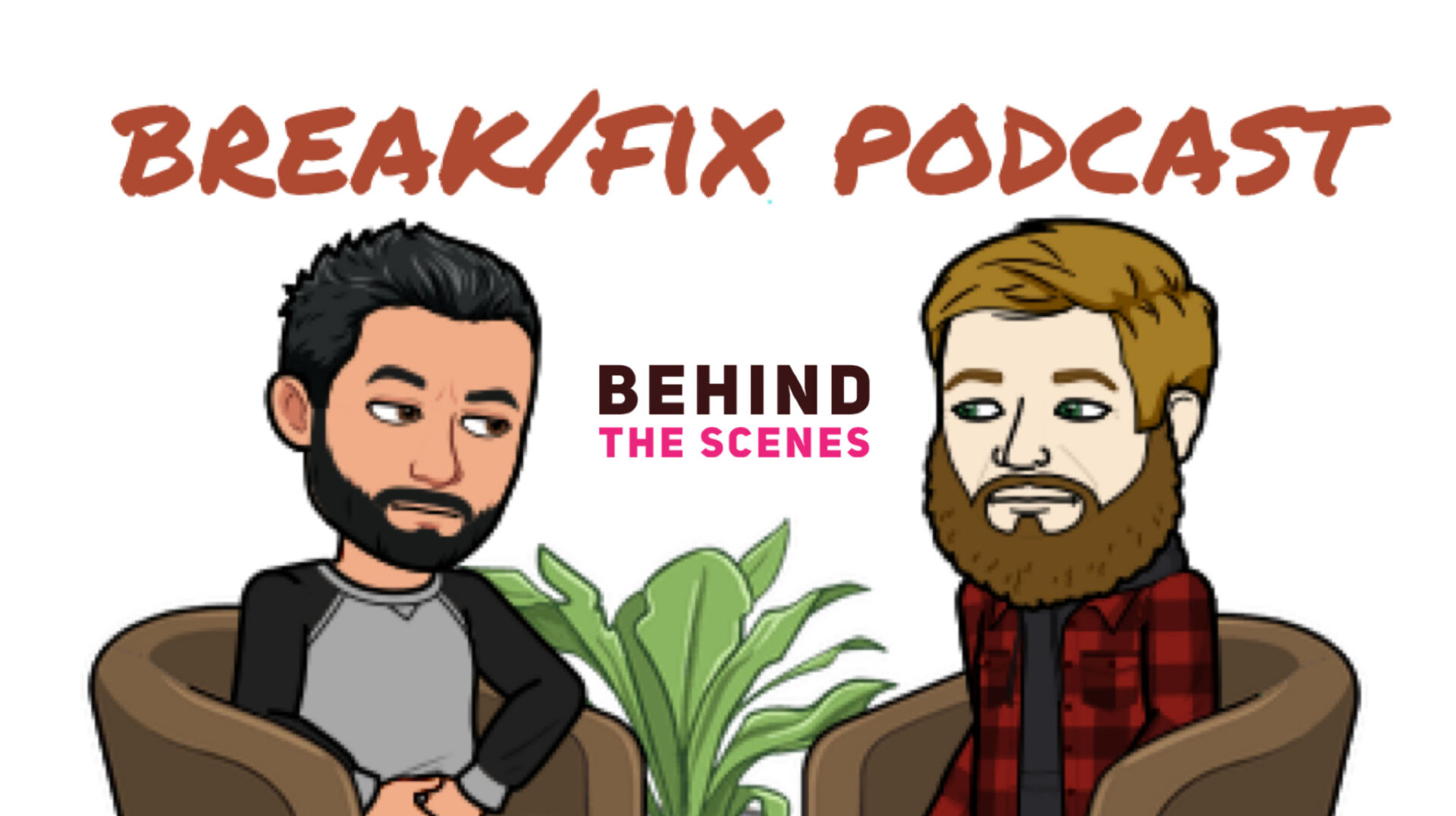
Consider becoming a GTM Patreon Supporter and get behind the scenes content and schwag!
Do you like what you've seen, heard and read? - Don't forget, GTM is fueled by volunteers and remains a no-annual-fee organization, but we still need help to pay to keep the lights on... For as little as $2.50/month you can help us keep the momentum going so we can continue to record, write, edit and broadcast your favorite content. Support GTM today! or make a One Time Donation.
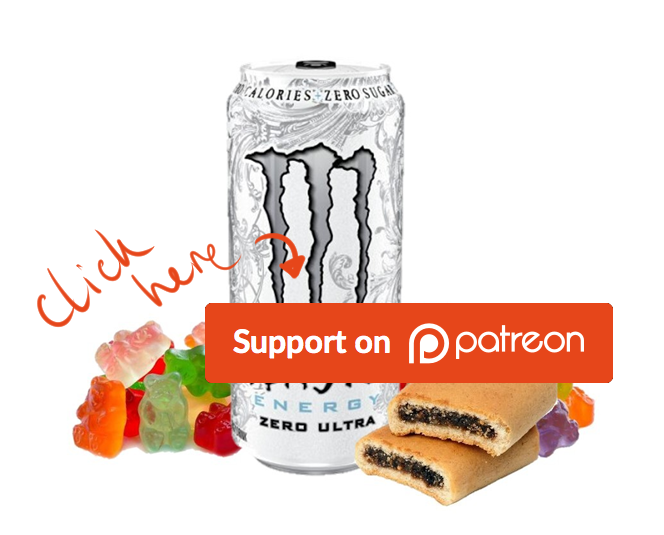
If you enjoyed this episode, please go to Apple Podcasts and leave us a review. That would help us beat the algorithms and help spread the enthusiasm to others by way of Break/Fix and GTM. Subscribe to Break/Fix using your favorite Podcast App:
 |  |  |
Your car has a story… give it a voice with AutoBio Tags! Your custom AutoBio Tag goes inside your windshield and allows anyone with a smartphone to be able to scan the Tag to reveal the photos, specs and story of your car. Car show life just got a whole lot easier.
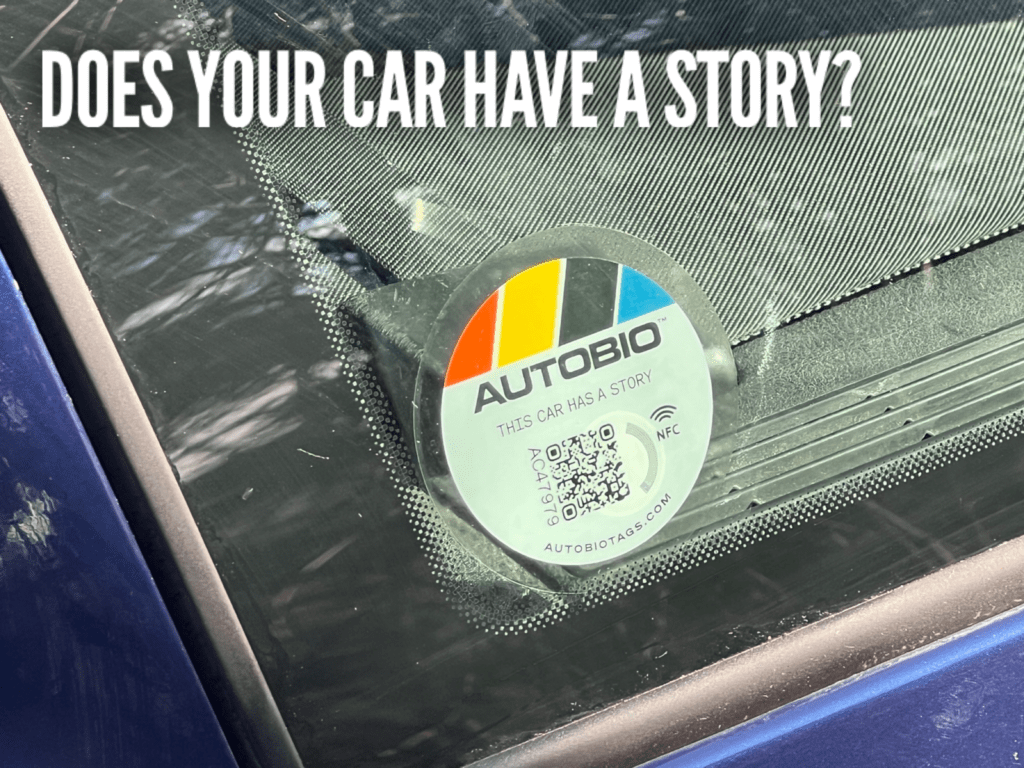
To learn more about this revolutionary platform, be sure to logon to www.autobiotags.com or follow Paul and Katie on social @autobiotags on both Facebook and Instagram.
Scan the Tag!
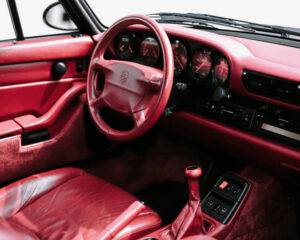
AutoBio is the award-winning digital showcase for vehicles. Place your AutoBio Tag inside your windshield (it’s a cling, not a sticker). Anyone with a smartphone can scan the Tag to reveal the photos, specs and story of your car. No app download required.
Easy to Use
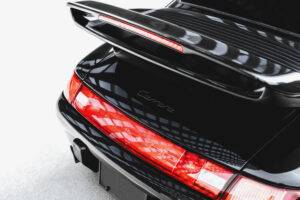
- Easy fill-in-the-blank story builder. Update anytime.
- No subscription fees.
- Car shows & collections just got a whole lot cooler.
Tell a Friend!
